democracynow.org
Stories:

It's Time for a Basta Trump Campaign: Latino Leaders Launch Voter Registration Drive
"With hate-spewing Donald Trump closer than ever to the Republican nomination for President, it’s time to get real about a Basta Trump campaign," writes Democracy Now! co-host Juan González in his new Daily News column. He discusses how leaders among the more than 50 million U.S. Latinos recently announced a major voter registration drive ahead of the November election. The Spanish-language network Univision has unveiled plans to use all of its radio and television stations to register 3 million new voters. González notes no one is angrier at Trump right now than young Latinos, who most feel the damage from his months of anti-immigrant and anti-Mexican rhetoric.
TRANSCRIPT
This is a rush transcript. Copy may not be in its final form.
AMY GOODMAN: Before we turn to the big Super Tuesday results, Juan, your piece in the New York Daily News, "Now is the Time for Latino Millennials to Vote." Talk about this.
JUAN GONZÁLEZ: Well, you know, one of the interesting things about this election really is that Trump, especially now as he’s getting closer and closer to being seen as the likely Republican candidate for president, has been basing a lot of his campaign on building a wall with Mexico, attacking Mexico, attacking the immigrant community, and we’re seeing increasingly the impact on young people across the country, especially young Latinos. We’ve seen the reports in the last week of high schools in Iowa, in Indiana, where young white—young white students were saying, "Build a wall," and "Trump, Trump," and taunting fellow Latino students.
We’re seeing an enormous interest in this race by young Latinos across the country. And they are, especially the millennial Latinos, are the biggest, by far, growing sector of the American electorate. One-half of the 27 million eligible Latino voters, who are citizens and over the age of 18, are millennials. And it’s been a sharp increase, a 40 percent increase, just since 2008 in the number of eligible Latinos that could vote.
So the reality is that the issue of a registration drive, which many Latino leaders are now pointing out—you’ve seen Univision say that they’re going to use all of their television stations and their networks to promote a 3 million-voter registration drive among Latinos. I think what’s actually needed is more of a Freedom Summer campaign by the Latino youth of America, similar to what happened in the civil rights movement, that—where thousands of Latino youth go into their communities and say, "You’re not going to deport our parents. We’re American citizens, and we’re going to make a stand in terms of 'Basta Trump.'" And I think that that is increasingly the sentiment I’m hearing among Latino leaders across the country, that they’ve got to harness the millennial Latinos, who now represent—not only do they represent 50 percent of the entire potential [Latino] electorate, but that every year 800,000 young Latinos turn 18, and this is going to continue for years to come. So I think that that’s what the Republican Party is really very much afraid of, that Trump’s campaign is essentially digging a grave for the Republican Party in the future.
AMY GOODMAN: And we’re going to talk about Trump’s campaign right now, as well as the Democrats, on the Super Tuesday aftermath. ... Read More →

Latino Vote Helps Bernie Sanders Surge to Victory in Colorado in Massive Democratic Caucus Turnout
In the race to the White House, Democrat Bernie Sanders surged to victory last night in the Colorado caucus, along with Vermont, Oklahoma and Minnesota. Colorado has a growing Latino population, who make up nearly 15 percent of eligible voters in the state. Most of them are registered Democrats. Caucuses in Colorado are open only to registered party members, and the state added nearly 30,000 registered Democrats in recent months, some of whom reportedly joined the party so they could caucus for Sanders. We go to Denver, Colorado, for an update from Corey Hutchins, journalist for The Colorado Independent, a nonprofit digital news outlet in Denver, and Dulce Saenz, a Mexican immigrant who is the Colorado state director with the Bernie Sanders campaign. We are also joined by Donna Murch, associate professor of history at Rutgers University.
TRANSCRIPT
This is a rush transcript. Copy may not be in its final form.
JUAN GONZÁLEZ: In the race to the White House, Democrat Bernie Sanders surged to victory last night in the Colorado caucus, along with Vermont, Oklahoma and Minnesota. Colorado has a growing Latino population, who make up nearly 15 percent of eligible voters in the state. Most of them are registered Democrats. Erika Andiola, the national Latina press secretary for Sanders, spoke to Democracy Now! last night outside of the Sanders victory party in Denver.
ERIKA ANDIOLA: Here, the Latino community is learning more and more about Bernie Sanders. We started at a disadvantage. Obviously, you know, we had an opponent that has been very well known within the Latino community, but who didn’t have the Latino community entirely on her side. And I think Bernie, every time he speaks, every time that he comes out, and the more and more momentum we gain, the more Latinos are able to learn who he is and the message that he brings. And more and more Latinos are getting tired of the establishment. They’re getting tired of the politics that are continuing to—you know, getting us stuck. We can’t get immigration reform. We can’t get so many changes in our healthcare system, in our education system, and that is because of the establishment politics. And Latinos are seeing it more and more. And they are definitely "feeling the Bern."
AMY GOODMAN: Erika Andiola, the national Latina press secretary for Sanders. Caucuses in Colorado are open only to registered party members. The state added nearly 30,000 registered Democrats in recent months, some of whom reportedly joined the party so they could caucus for Sanders.
Well, for more, we’re going directly to the Denver Open Media Center in Colorado, where we’re joined by two guests. Corey Hutchins is a journalist for The Colorado Independent, a nonprofit digital news outlet in Denver. And Dulce Saenz, the Colorado state director with the Bernie Sanders campaign. Still with us in New York, Donna Murch, associate professor of history at Rutgers.
Dulce Saenz, can you talk about this victory—it’s one of four that Bernie Sanders had in the country last night on Super Tuesday—and why you think he won in Colorado?
DULCE SAENZ: Absolutely. We are so incredibly excited that we won Colorado. You know, Coloradans have a spirit of pioneering. It’s part of our history here in Colorado. And, you know, currently, we see about a third Democrat, a third Republican and a third independent. And so, that division that Sanders is talking about, the independence he’s talking about, you know, is really speaking to Coloradans here.
AMY GOODMAN: And, Corey Hutchins, can you explain how the whole system works in Colorado—I mean, the fact that Republicans weren’t also caucusing for their presidential candidate, and how the Democratic caucus works? I heard it was totally chaotic.
COREY HUTCHINS: Yeah, it was. One woman described it to me last night in a swing county where I watched the caucus, and she called it—she looked around—and this is a retired veteran—and said, "My gosh, this is creative chaos." More people showed up to these caucuses this year than was expected. I think the estimate we’re hearing is about 120,000, which is about how many came out in 2008 during the Obama-Clinton showdown here in Colorado.
The caucus system, as you said, is only open to registered Democrats. And over 1 million registered voters in Colorado weren’t allowed to participate, because they are unaffiliated voters. It’s a caucus process that is run by the political parties here. The Republicans did have their caucuses here in Colorado last night, but they did not hold a presidential preference straw poll like the Democrats. They essentially just decided to take a pass on Colorado.
JUAN GONZÁLEZ: And, Dulce, can you talk about the changing nature of the Colorado population? Clearly, there’s always been a resident longtime Latino community, especially in southern Colorado. But the growth of the Latino community in Colorado, how that’s shaped the political perspectives and the orientation of the Democrats?
DULCE SAENZ: Absolutely. Well, I’m actually an immigrant from Mexico myself and grew up in Weld County, which is about 25 percent Latino. And it’s a county in which we won by a substantial margin, as well. And so we have a strong, you know, Chicano "the border crossed me" population in Colorado, in southern Colorado, southwest, but also an immigrant population, again, in the northeastern plains here in the Front Range, as well as the Western Slope, because of a lot of seasonal job opportunities. And so, it’s certainly a growing demographic and played a significant role for us last night.
AMY GOODMAN: And why do you support Bernie Sanders? How did you make that decision?
DULCE SAENZ: Absolutely. Well, you know, being from a country like Mexico, where you understand the politics and the corruption and the money involved in that government, I am absolutely concerned about the money being spent in elections, even locally. You know, school board elections cost more and more every time, you know, the politics. And I’ve worked in immigration reform, education equity and climate issues, and there’s always—you know, despite the progress we might make on each of these individual issues, there was always something larger—you know, big polluters funding anti—combating climate change policies. And so, Senator Sanders really speaks to some of the systemic issues that we’re facing as a country, which prohibit us from addressing more specific policies.
JUAN GONZÁLEZ: And, Donna Murch, I wanted to bring you back into the conversation in terms of how—the takeaway that you would like our viewers and our audience to sum up from last night’s votes?
DONNA MURCH: Well, one thing is, is thinking about the constraints that were faced by the Sanders campaign, things we’ve already talked about, both voter suppression and name recognition. But also, I think one of the most effective parts of Hillary Clinton’s strategy has been to drape herself in Barack Obama’s legacy and to say that "in order to continue Barack Obama’s presidency, it’s necessary to vote for me." And I think that’s very important. I think that helps to explain some of the efficacy of getting support from African-American voters, but I do not think we should take this as a kind of death knell on black radical politics, seeing the large numbers of votes coming from black millennials, the successes in their outreach among historically black colleges, and also a new kind of coalition that’s bringing together a whole portion of the black left, of academics, also Sanders campaign’s outreach to the $10 minimum wage in Birmingham, so links between black labor, left, academics, millennials and kind of a new generation of people mobilizing around these issues of economic redistribution.
AMY GOODMAN: And, Corey Hutchins, I mean, the entire Democratic leadership, almost across the board, in Colorado was for Hillary Clinton, is that right?
COREY HUTCHINS: Oh, absolutely. Yeah, the entire Democratic congressional delegation in Colorado supports Hillary Clinton—the Democratic governor, John Hickenlooper, here supports Hillary Clinton; former U.S. Secretary of the Interior and U.S. Senator Ken Salazar supports Hillary Clinton; the mayor of Denver; the former mayor of Denver. And yet Hillary Clinton lost to Bernie Sanders here in Colorado by what looks like about 20 points.
This was most evident to me about a week ago, when both campaigns rolled out their legislative endorsements here at the Capitol in Denver. The Sanders campaign—out of a hundred members of the Legislature here, the Sanders campaign could only find three members of the House to come out and stand on the steps and declare their support for Sanders. When they did that, though, they were backed by a hundred excited, sign-waving people clearly, quote, "feeling the Bern." It was a—
AMY GOODMAN: And this is—
COREY HUTCHINS: You know, it was a rally.
AMY GOODMAN: This is very similar to what happened in New Hampshire—the entire Democratic leadership for Hillary Clinton, and yet Bernie Sanders won. And the Senate is very important now, is that right, Corey Hutchins, in what’s going on now in Colorado?
COREY HUTCHINS: Yeah, sure. There’s a giant, a big race for the U.S. Senate. Michael Bennet is our Democratic senator here. He’s the senior senator here in Colorado. And there are now officially 13 Republican candidates who are looking to take him on in November. Half of them will go through the grassroots caucus process, as they did last night, and the other half are going to petition onto the ballot and kind of take their message outside that grassroots, meat-grinder caucus system, and they’re going to petition directly onto the ballot. And so—and there’s also a pretty closely watched congressional race here in Colorado. Mike Coffman, the Republican congressman from District 6, a suburb of—Arapahoe, a suburb of Denver—
AMY GOODMAN: We’re going to continue that on another day, because our time clock is running out. But thank you so much to Corey Hutchins of The Colorado Independent and Dulce Saenz, Colorado state director for the Bernie Sanders campaign, Bernie Sanders who won in Colorado. And Donna Murch of Rutgers University. ... Read More →

Super Tuesday Roundtable: Few Surprises as Clinton and Trump Win 7 States Each, Sanders Gains 4
The biggest voting day of the presidential primary race was a big victory night for Democratic candidate Hillary Clinton and Republican candidate Donald Trump, who each won in seven states and gained a majority of delegates. Democrat Bernie Sanders won four, including his home state of Vermont. Republican Senator Ted Cruz also won his home state of Texas, along with Oklahoma and Alaska. Meanwhile, Republican presidential candidate Marco Rubio scored his first victory in the race in Minnesota. Republican John Kasich came in second in Vermont, and Ben Carson had no wins. We play highlights from the candidates’ Super Tuesday speeches and host a roundtable discussion about the race to the White House with Donna Murch, associate professor of history at Rutgers University, whose recent article in New Republic is "The Clintons’ War on Drugs: When Black Lives Didn’t Matter"; Hans Noel, associate professor of government at Georgetown University and the co-author of "The Party Decides," whose new piece for The New York Times is called "Why Can’t the G.O.P. Stop Trump?"; and James Peterson, director of Africana studies and associate professor of English at Lehigh University.
TRANSCRIPT
This is a rush transcript. Copy may not be in its final form.
JUAN GONZÁLEZ: The biggest voting day of the presidential primary race was also a big night for Democrat Hillary Clinton and Republican Donald Trump, who each won victories in seven states, along with a majority of delegates. Democrat Bernie Sanders won four states, including his home state of Vermont, as well as Oklahoma, Minnesota and Colorado. Ted Cruz won his home state of Texas, as well, along with Oklahoma and Alaska, despite former Governor Sarah Palin’s endorsement of his rival, Trump. And Republican Marco Rubio won only one state—Minnesota. He also fell short of winning the minimum 20 percent of the vote needed to earn a proportional amount of the delegates in Texas, Alabama and Vermont. Meanwhile, Republican John Kasich came in second in Vermont. Ben Carson had no wins. Both Kasich and Carson vow to stay in the race.
Hillary Clinton dominated among older voters and African Americans as she swept the South and beat her challenger, Sanders, in seven of the 11 races contested by the Democrats, including the delegate-rich states of Texas, Georgia and Virginia, and by a narrow margin in Massachusetts. She celebrated with supporters at a victory rally in Miami.
HILLARY CLINTON: What a Super Tuesday! You know, all across our country today, Democrats voted to break down barriers so we can all rise together. And it might be unusual, as I’ve said before, for a presidential candidate to say this, but I’m going to keep saying it: I believe what we need in America today is more love and kindness. Because you know what? You know what? It works. Instead of building walls, we’re going to break down barriers and build ladders of opportunity and empowerment, so every American can live up to his or her potential, because then and only then can America live up to its full potential, too.
Now, it’s clear tonight that the stakes in this election have never been higher, and the rhetoric we’re hearing on the other side has never been lower. Trying to divide America between us and them is wrong, and we’re not going to let it work.
JUAN GONZÁLEZ: Meanwhile, in Vermont, Clinton’s rival, Bernie Sanders, celebrated a massive win and vowed to fight on until the Democratic convention in July.
SEN. BERNIE SANDERS: Well, tonight, you’re going to see a lot of election results come in, and let me remind you of what the media often forgets about. These are not—this is not a general election; it’s not winner take all. If you get 52 percent, you get 48 percent, you roughly end up with the same amount of delegates in a state. By the end of tonight, we are going to win many hundreds of delegates.
SANDERS SUPPORTERS: Bernie! Bernie! Bernie!
SEN. BERNIE SANDERS: Ten months ago, as you know better than any other group in America, when we were out on the lake, we were at 3 percent in the polls. We have come a very long way in 10 months. At the end of tonight, 15 states will have voted, 35 states remain. And let me assure you that we are going to take our fight—for economic justice, for social justice, for environmental sanity, for a world of peace—to every one of those states.
JUAN GONZÁLEZ: In the Republican race, Donald Trump swept to victory in Alabama, Arkansas, Georgia, Massachusetts, Tennessee and Vermont, where he was in a close contest with John Kasich, and in Virginia, where Rubio had campaigned hard. During a victory party in Palm Beach, Florida, Trump claimed he is a unifier.
DONALD TRUMP: We have expanded the Republican Party. When you look at what’s happened in South Carolina and you see the kind of numbers that we got in terms of extra people coming in, they came from the Democratic Party or the Democrat Party. And they’re Democrats, and they’re longtime Democrats, and they were never going to switch, and they all switched, and they were independents. And we’ve actually expanded the party. Look at the number of votes we had in that area, as an example. Four years ago, they had 390,000 or so votes. We doubled it—we were almost 800,000—whereas the Democrats went down. There’s much less enthusiasm for the Democrats.
So, look, I am a unifier. I know people are going to find that a little bit hard to believe, but, believe me, I am a unifier. Once we get all of this finished, I’m going to go after one person—that’s Hillary Clinton—on the assumption she’s allowed to run, which is a big assumption. I don’t know that she’s going to be allowed to run.
AMY GOODMAN: Well, today we spend the hour looking at the race to the White House. We begin with three guests. In Washington, D.C., Hans Noel is an associate professor of government at Georgetown University, co-author of The Party Decides. His new piece for The New York Times is "Why Can’t the G.O.P. Stop Trump?" Here in New York, Donna Murch joins us. She’s associate professor of history at Rutgers University, whose recent piece in the New Republic, "The Clintons’ War on Drugs: When Black Lives Didn’t Matter." And in Philadelphia, Pennsylvania, James Peterson is with us, director of Africana studies and associate professor of English at Lehigh University, a lead MSNBC contributor and a host on NPR affiliate WHYY in Philadelphia.
We welcome you all to Democracy Now! Hans Noel, let’s begin with you. What’s happening within the Republican Party right now? It is very clear that Donald Trump is the front-runner and is well on his way to the convention. Who knows if it will be brokered or not? Talk about what the leadership is doing right now. Hans Noel, can you hear us?
HANS NOEL: I’m sorry, you’re coming in and out a little bit. Yes, you’re asking about Trump. He does appear to be in a position of—you know, it’s going to be difficult to stop him at this point. It does look like he’s likely to be the nominee.
AMY GOODMAN: And talk about the response of the Republican Party. I want to go to a clip right now of Paul Ryan, Paul Ryan who is the House speaker, who said on Tuesday that the Republican presidential nominee must reject any group built on bigotry.
SPEAKER PAUL RYAN: So today I want to be very clear about something. If a person wants to be the nominee of the Republican Party, there can be no evasion and no games. They must reject any group or cause that is built on bigotry. This party does not prey on people’s prejudices. We appeal to their highest ideals. This is the party of Lincoln. We believe all people are created equal in the eyes of God and our government. This is fundamental. And if someone wants to be our nominee, they must understand this. I hope this is the last time I need to speak out on this race. It’s time we get back to focusing on how, very specifically how, we are going to get to solving the many problems that American families are facing after seven years of Barack Obama.
AMY GOODMAN: That’s House Speaker Paul Ryan. Also Tuesday, Senate Majority Leader Mitch McConnell sought to distance himself from Donald Trump by condemning the KKK. He said, quote, "Let me make it perfectly clear: Senate Republicans condemn David Duke [and] the KKK ... That is not the view of Republicans that have been elected to the United States Senate," he said. So, Hans Noel, talk about what is happening here and the possibility that he could—that Donald Trump could win the popular vote leading up to the convention, but the forcing of a brokered convention because they don’t like Donald Trump.
HANS NOEL: Yeah, the Republican Party leadership really doesn’t like Trump, and so they’d like a strategy to stop him. And while Trump is clearly going to have, I think, if not the most delegates, clearly a very large amount, probably an outright majority, you know, he is also doing that winning 45, 35, 40 percent of the vote, so there’s a lot of the voters in the Republican Party who also don’t like him. They just haven’t coordinated on who they don’t like. So the Republicans would love to find a way to come up with some other candidate, but the rules that they’re playing under don’t give them a lot of options.
JUAN GONZÁLEZ: Hans Noel, the calls of Ted Cruz for all the other candidates to drop out so that he can go head to head against Trump are also not necessarily receiving support among the Republican leadership. Could you talk about that?
HANS NOEL: Yeah. Well, the problem is that the Republican leadership doesn’t much care for Cruz, either. If there were no Trump, Cruz would probably be the candidate that everyone on the leadership was trying to stop. I mean, the party was essentially divided—before Trump got involved, the party was essentially divided between a party regulars group, that kind of liked Jeb Bush, and then a more ideological tea party, Freedom Caucus-type group that came to like Ted Cruz. But that divide is not easily bridged. And what they need is a candidate that can abridge that divide. There are a lot of possible candidates, but none of them really seem to get traction in both places. So you already had a fractured party. The solution to getting rid of Trump is to go to one half of that fracture, isn’t very satisfying to a lot of people in the party, either.
JUAN GONZÁLEZ: And I wanted to ask Donna Murch—on the Democratic side, you’ve got this enormous racking up of votes from African Americans by Hillary Clinton throughout the South now, and yet Bernie Sanders is still—has the support of many of the progressive African-American intellectuals around the country, and he’s managed to dent the Latino vote, at least in Colorado and Nevada, not necessarily in Texas, because South Texas went overwhelmingly for Hillary Clinton last night. Your sense of what is happening in terms of the debate in the African-American community over Clinton and Sanders?
DONNA MURCH: Well, you know, I think that it’s interesting. A lot of the mainstream coverage of the Sanders campaign has really talked about how it’s an all-white campaign and they have very few black campaign workers. I have been to some of the events, I’ve met the organizers involved, and there is significant black staff. So what this does is raise larger questions about political coalition in the history of the Democratic Party.
I think that, looking at the results, first in South Carolina and now on Super Tuesday, what we’re seeing were immense black voter turnouts for Hillary Clinton. And she is a compelling political figure for significant portions of the African-American electorate. On the other hand, there really is a very big base of support particularly among the black left and among academics, intellectuals and also working-class people in other parts of the country. So I think we have to do a little bit of an analysis about what’s happened. One of the things that I’m surprised about is that the issues of mass incarceration and the Clintons’ history, not only with the war on drugs, but also the war on gangs, which is the context in which that "superpredator" and "bring them to heel" comment was made, that much of the historical memory of that doesn’t seem to be informing the voting practices. And so, I think all of us who are very concerned about mass incarceration and these larger issues about equity and social justice are trying to interpret what’s happened in the South.
What I would say is that there are real social constraints in getting out the vote. Hillary Clinton and her husband have built a patronage network. They’ve been supported very strongly by a black leadership class, not only electoral. We know about the Congressional Black Caucus PAC, but Congressman Clyburn was supporting Hillary very strongly, as were local ministers and the local and municipal and state black legislatures. So I think that trying to make Bernie Sanders legible to a black population, many of whom don’t know who he is, a 74-year-old senator from Vermont, that is a large part of the challenge. In that sense, we have to think about it in that way. This is really an insurgent campaign inside the Democratic Party that can’t draw on long-standing patronage networks.
AMY GOODMAN: You have these interruptions of Hillary Clinton’s private fundraisers or when she’s just walking. You had the recent one in South Carolina. Then, we reported in headlines today, in Minnesota, a Somali young woman—a Somali-American young woman also referring to the superpredator comments. If you could say more specifically what they are saying about Hillary Clinton’s comment in 1996? And then also talk about Georgia, which she swept, but you have looked at that state.
DONNA MURCH: Well, what they’re talking about is a comment that she made about, essentially, superpredators that needed to be brought to heel, so, you know, using a language that’s really a language of dehumanization, talking about black youth as animals. And it’s precisely that kind of discourse that made the war on drugs and war on gangs possible, this utter stripping of humanity. So, in that sense, just like Black Lives Matter’s confrontation of her last summer, this is the same issue about mass criminalization of black youth. And I think that, interpreted in that way, this is very important, because it’s opened up a broader dialogue within the African-American community and also within the broader electorate about: How do we prioritize mass incarceration? People are very upset about it, but how does that translate into policy change and into supporting particular types of candidates? And I think that that debate is going to continue long after these results.
In looking at Georgia, there were remarkable things that happened that have not made it into the mainstream media. One of the most incredible—and I found this on social media—was a massive rally, a protest—a campaign rally that took place at Morehouse, in which the Omega Psi Phi fraternity got up and did a full step show right before the Sanders rally. And if you looked into the crowd, it was filled with thousands of people, and you saw this mobilization of black millennials. And that’s something that I wanted to highlight, that speaks also to what Juan was saying about Latino millennials.
If you break down the South Carolina voting totals, Hillary still won among black millennials, but it was much closer. It was roughly 56-43. So, that speaks to the successful organizing efforts of the Sanders campaign and also to the future of seeing black millennials who are very concerned about mass incarceration, but also these economic questions, real concern about the cost of higher education, social welfare, things that are about people’s bottom line. So, looking—disaggregating by age, I think, is quite important in the African-American community also.
AMY GOODMAN: And you had Trump throwing out 30 black students at Valdosta, Georgia, this week, many of them extremely upset, saying, at Valdosta State University, they had come to see what a Trump rally looked like. I wanted to get James Peterson’s comments, overall, on the—on Super Tuesday and the tremendous sweep of both Hillary Clinton and Donald Trump.
HILLARY CLINTON: South Carolina became the first state with body cameras. There’s more work to be done, but got to lay down these markers. You’ve got to build toward commonsense gun reform, criminal justice.
AMY GOODMAN: When we come back, we’ll go to James Peterson. This is Democracy Now! We’ll be back in a minute.
[break]
AMY GOODMAN: That’s Nellie McKay, "Justice," here on Democracy Now!, democracynow.org, The War and Peace Report. This is Democracy Now! on the morning after, on the day after the Super Tuesday primaries, where both Hillary Clinton and Donald Trump swept many of the states that they were competing in, each of them getting seven states, Bernie Sanders winning in four states, Ted Cruz winning in three states, and Marco Rubio picking up his first state, Minnesota. Our guests are James Peterson at Lehigh University and Donna Murch from Rutgers University. James Peterson, your overall reaction to what took place on Super Tuesday?
JAMES PETERSON: Well, first, there’s the extreme irony on the Republican side to hear establishment Republicans try to push Donald Trump on his KKK maneuvering around those comments, and calling for him to reject those kinds of groups, when the party, on the whole, over the last—I don’t know—six or seven presidential elections, has deployed what we refer to as the Southern strategy, which is a strategy that usually uses like dog whistles and different kinds of underhanded ways of forcing their base to sort of think more racially in terms of the American body politic. And so, when you saw Trump maneuvering around that question, just days before you have Super Tuesday, which features Georgia, Texas, these huge Southern states, he was actually playing into the establishment Republican playbook. He just does it more explicitly, and he does it in a way that I think the base of the Republican Party, particularly in the South, can identify with as not being politically correct. And so, his strategy was realized on Super Tuesday, but it’s interesting to see Republicans reject something that they’ve embraced in a more subversive way for a long time in Republican politics.
Obviously, Hillary Clinton is also a big winner coming out of last night. Professor Murch is absolutely right, though, that we have to kind of break down some of the numbers to think about what’s been successful on the Sanders side of the Democratic presidential race at this point in time. There are some interesting maneuvers that he’s made with millennials, with the black left and the intellectual class. But at the end of the day, the Clintons have built a machine in this country, particularly in the South, that’s—it’s not just patronage. You know, they’ve gotten a lot of black officials elected, but they also have an extensive ground game in many of these large states, a lot of the Super Tuesday states, that’s been in place for almost a couple of decades now. And so, Hillary Clinton is certainly a beneficiary of the long sort of history of Clintons in American politics.
I think the Sanders campaign and the surrogates for Sanders have to be careful about how they chastise black folks and other folks who don’t come over to their cause, because at the end of the day some of the commentary has been condescending coming from the black left directed at black folks who support Hillary Clinton. And so you have these sort of internecine squabbles in and around people being smart about politics, who we should be voting for, what are the particular issues for the Democratic Party and the left going into the future. I loved Juan’s piece about the Latino millennials, because that is going to more and more become an essential piece of this. I hope, though, that for all the voting folks on the left in the Democratic Party—I hope it becomes less about rejecting Donald Trump and more about what the progressive values of the Democratic Party need to be, going into the 21st century.
JUAN GONZÁLEZ: And, James Peterson, I wanted to ask you about a line of argument that Donald Trump is increasingly pressing in his press conferences and his availabilities, and that is about the energy level of the voters in the Republican primaries versus the Democratic primaries. We’re seeing record numbers of people voting in the Republican primaries, and we’re seeing pretty much, so far, a diminished turnout in the Democratic primaries, nothing like what occurred when Hillary Clinton and Barack Obama were contesting the nomination in 2008. Do you have some concern? Or your perspective on this argument that the Republican base is much more energized at this point?
JAMES PETERSON: Well, it’s a pendulum swing, Juan. And here’s the thing. This is less about like establishment versus outsider politics on the right, and much more about the ways in which Donald Trump, because of his media presence, because of the simplicity of his message, and because of his rejection of what folks think of as being politically correct, he has tapped into the broad swath of Americans who are rejecting the first black presidency. And I know for a lot of folks it’s hard for them to think about this all being about race—and maybe it’s not simply about race—but there are a lot of Americans who honestly feel as if Barack Obama and the current demographic shifts, some of the shifts that you talked about in your piece, Juan, are in some ways taking the country away from them. There are folks who feel as if—this is the nativist impulse on the right, that America needs to go back to some point in time where white folks were dominant and predominant. So the demographic shifts, two terms of the first black presidency, has created a groundswell of folks on the right who are rejecting the future of America, essentially, the demographic future of America. Donald Trump is tapping into that. That is a very real base of the Republican Party, and it does galvanize and excite folks who have checked out of a system that they think has been taken away from them via these different demographic shifts and the changing sort of racial makeup of the United States. And so, it’s more that, especially on Super Tuesday with all those Southern states, that Donald Trump is tapping into.
On the left, or in the Democratic Party, the left is depressed, partially because of disappointments from the Obama administration, partially because of the sort of two decades’ drift towards the center or towards the right that the Democratic Party has embraced. And so, this is why when you—even when you play the clips from the Clinton rally versus the Sanders rally, you hear that enthusiasm and that energy in the Sanders rally, you don’t hear it at the same level in the Clinton rallies. And part of that is because, you know, Sanders has this national ad out right now that’s a very simple breakdown of how money in the political process in America is destroying the political process. It is very compelling, very convincing, and folks on the left understand that, especially those of us who are a little bit older, who have been experiencing this drift towards the right of the Democratic Party. And so, Sanders is definitely tapping into that energy, but the left and the Democratic Party are depressed because of that move towards the right and because of some disappointments in the Obama administration. That great hope that Obama cultivated at the top of his candidacy has diminished, unfortunately, over the last two terms, based upon different policy things. And we could talk for hours about the different—the minutiae of the policies of the Obama administration and how that has disappointed the left, but that’s essentially why you’re seeing a depressed turnout on the left and then a sort of enhanced turnout on the right for Donald Trump. ...Read More →

"Trump's Train Did Not Stop in Texas Last Night": Cruz Wins Home State as SCOTUS Hears Abortion Case
Senator Ted Cruz was victorious in his home state of Texas on Super Tuesday, reports our guest Andrea Grimes, who has led political coverage at The Texas Observer and also covers women’s health. She says the turnout was impacted by vote suppression and "serious gerrymandering." This comes as many reproductive rights activists head to protests outside the Supreme Court today during oral arguments on a Texas law that has forced the closure of all but 10 abortion clinics. "If things don’t go in the direction of Whole Woman’s Health, we really could be seeing a wave of draconian anti-abortion legislation taking place across the United States," Grimes says. She also discusses the state’s new "campus carry" law that allows students with weapons permits to bring guns on campus and which goes into effect later this year ahead of the fall semester. We’re also joined by Donna Murch, associate professor of history at Rutgers University.
TRANSCRIPT
This is a rush transcript. Copy may not be in its final form.
JUAN GONZÁLEZ: Well, James Peterson, I wanted to turn to the biggest prize last night in the primary, which was Texas, the home state of Republican presidential candidate Ted Cruz. Cruz celebrated his victories in Texas, Oklahoma and Alaska with a round of mudslinging against the Republican front-runner, Donald Trump.
SEN. TED CRUZ: Tomorrow morning, we have a choice. So long as the field remains divided, Donald Trump’s path to the nomination remains more likely. And that would be a disaster for Republicans, for conservatives and for the nation. And after tonight, we have seen that our campaign is the only campaign that has beaten, that can beat and that will beat Donald Trump.
AMY GOODMAN: That’s Ted Cruz speaking in Houston. We’re going to go to Austin right now to Andrea Grimes, digital editor at The Texas Observer. She has helped lead the paper’s day-to-day political coverage, formerly a senior political reporter at RH Reality Check. We’re still with Donna Murch of Rutgers, as well as James Peterson at Lehigh. So, Andrea, talk about the significance of the Texas primary and Ted Cruz’s victory.
ANDREA GRIMES: Well, you know, all eyes really were on Texas last night. If Cruz had not picked up his home state, it really would have been kind of a nightmare for him. But he performed really well, you know, despite the Trump surge, despite huge voter turnout numbers for the GOP here in Texas. A lot of people thought that that might spell victory for Trump, but in fact Cruz prevailed. And as we’ve heard, he’s promising to, you know, take this thing all the way to the convention. So the Trump train did not stop in Texas last night.
JUAN GONZÁLEZ: And in terms of what enabled him to—other than name recognition, to marshal that support?
ANDREA GRIMES: You know, I think name recognition did help him. Cruz has a great reputation also with the tea party here in Texas. The tea party has really kind of enjoyed his razzing of the national party in Washington. They like that he challenges the kind of Beltway establishment. And I think that that plays really, really well here. I also think that some of the remarks that Trump has made, racist remarks, baited remarks about the Latinx community, have not played well here in Texas at all, and I think that those two things kind of came together really in terms of Republican turnout to give Cruz that win.
AMY GOODMAN: You know, it’s interesting. Planned Parenthood was talked about twice—in Trump’s news conference that he held at Mar-a-Lago—he didn’t have a party, a big party for Super Tuesday; he held it at his big estate in Florida—and also Ted Cruz talked about Planned Parenthood. That’s particularly significant, because today in Washington the Supreme Court will be hearing the most significant case on women’s right to choose in like two decades. So I wanted to go first to Trump’s news conference, when a reporter asked Donald Trump about his position on Planned Parenthood.
DONALD TRUMP: I’m just doing what’s right. Look, Planned Parenthood has done very good work for some—for many, many—for millions of women. And I’ll say it. And I know a lot of the so-called conservatives, they say that’s really—because I’m a conservative, but I’m a commonsense conservative. But millions of women have been helped by Planned Parenthood. But we’re not going to allow and we’re not going to fund, as long as you have the abortion going on at Planned Parenthood. And we understand that. And I’ve said it loud and clear. But—and we’ll see what happens. But Planned Parenthood, millions of people—and I’ve had thousands of letters from women that have been helped. And this wasn’t a setup. This was people writing letters. I’m going to be really good for women. I’m going to be good for women’s health issues. It’s very important to me, very important to me. And maybe that’s not a perfect conservative view.
AMY GOODMAN: And this was Ted Cruz addressing his supporters in Houston after his victory in Texas. He said he’s the best candidate in his party to defeat Donald Trump.
SEN. TED CRUZ: It’s our choice. Donald Trump has pledged to expand Obamacare into socialized medicine, with the federal government controlling and rationing your healthcare. As president, I will repeal every word of Obamacare. Donald Trump promises to cut deals with Democrats and to continue the Washington cronyism, just like he supported Obama’s TARP Wall Street bailout. I will stand with the people of this country and end corporate welfare, adopt a flat tax and abolish the IRS. Donald Trump funded the Gang of Eight. With your help, I led the successful opposition to the Gang of Eight’s amnesty plan. Donald Trump supports Planned Parenthood. I will direct the Justice Department to investigate Planned Parenthood.
AMY GOODMAN: There you have Ted Cruz laying out the differences between him and Donald Trump. Andrea Grimes, you’ve long covered women’s reproductive rights. How is this playing out in Texas and around the country right now, on this pivotal day when the Supreme Court’s going to hear the Whole Woman’s Health case in Texas that could determine access to abortion clinics around the country?
ANDREA GRIMES: Yeah, the Texas abortion law, HB 2, that passed three years ago has, you know, really made it—made it to the highest court in the land now. I know last night while I was keeping track of Super Tuesday returns, my social media feeds were actually full of reproductive justice activists here in Texas either in D.C. or on their way to D.C. for the Supreme Court oral arguments today. Of course, not many people will get inside, but they’re rallying in D.C. You know, I think we’ve seen a real upswing here in Texas of people who have had abortions telling their own abortion stories, trying to get the word out about the damage that HB 2 has done to Texas. I think that we’re all watching the Supreme Court to find out really, you know, not just how abortion access will play out in Texas, but across the country. The restrictions that are in HB 2 could come up anywhere in the country now. And I think a lot of anti-abortion lawmakers are looking to the Supreme Court perhaps to give them permission to pass restrictions, like admitting privileges for doctors or ambulatory surgical centers for abortion clinics. So, if things don’t go in the direction of Whole Woman’s Health, we really could be seeing a wave of draconian anti-abortion legislation taking place across the United States.
JUAN GONZÁLEZ: And, Andrea Grimes, I wanted to ask you about the—one particularity of Texas, the "campus carry" law, where students will now be able, if they have weapons permits, to bring guns on campus, and the impact of that on colleges and professors and students across the state?
ANDREA GRIMES: Yeah, so, our campus carry law is set to go into effect later this year, really right before the fall semester. No private university in Texas has said that they will opt in to the campus carry law. They were given the opportunity to opt out, and all of them did. The public universities here in Texas are really not fans of campus carry. I’m not sure that any education professional, any educator, any, you know, real serious professor who has taken time to think about these things, has really come out in strong favor of campus carry. And notably, the University of Texas at Austin, really the flagship university location here in Texas, the board president said that he’s going to do everything he can to limit the carrying of guns here on campus. It’s going to be difficult, though. We can have guns in classrooms. You can have guns in the hallway. You can have guns, you know, out in the quad. There are very few limitations on where kids can’t carry guns, and that includes in some living spaces. So, you know, it’s kind of tense, I would say, now. But I think we’re also potentially looking at perhaps some litigation. So it remains to be seen, really, kind of what will happen before the law goes into effect this fall.
AMY GOODMAN: And the changing demographics of Texas, Andrea, and how that plays into this Super Tuesday primary and also overall?
ANDREA GRIMES: Well, you know, people always want to wonder: When is Texas turning blue? When is Texas turning purple? The fact is that, demographically, Texas is already tremendously diverse. What we’re facing here is a problem of, in my opinion, voter suppression. We have a serious gerrymandering problem here. We’re dealing with a voter identification act that really hurts people’s ability to vote. So, you know, in terms of demographics, it’s a question we can talk about, but honestly, until some of our problems with gerrymandering and voter ID are dealt with, demographics are not going to be perhaps the biggest arbiter of who our elected officials are. I think that our elected officials do not represent the demographic makeup of the state. And I think they’d like to keep it that way.
AMY GOODMAN: Overall demographics of the South, Professor Donna Murch?
DONNA MURCH: The demographics of the South are also shifting. I mean, in understanding the rise of Trump, all over the country, Mexican populations are growing as the fastest percentage, and that’s true in the South, as well. In South Carolina, the Latino population is relatively small.
But also, on the issue of voter suppression, I think that that’s a big thing that we need to talk about. One thing I found out in researching kind of the black campaign workers working for Sanders was they talked about the number of constraints that I had not heard about. So we know about the usual voter constraints, gerrymandering. But, for example, South Carolina passed a law in which, when you’re trying to register new people to vote, they have to provide their Social Security number on voter registration forms. So when you’re doing door-to-door canvassing, that’s another block. So, I think this is another challenge to think about the broader issues about the outcome. It’s not simply who won and who lost and the percentages, or how electorate itself is shaped and how a very important and, some ways, most vulnerable population is being kept out of the electorate.
AMY GOODMAN: Donna Murch is at Rutgers University. Andrea Grimes is speaking to us from Austin, covering the Texas primary for The Texas Observer. When we come back, we’re going to Denver, Colorado, to find out about one of the states that Bernie Sanders won, the caucus state of Colorado. Stay with us. ... Read More →
Headlines:Hillary Clinton & Donald Trump Score 7 States Each on Super Tuesday
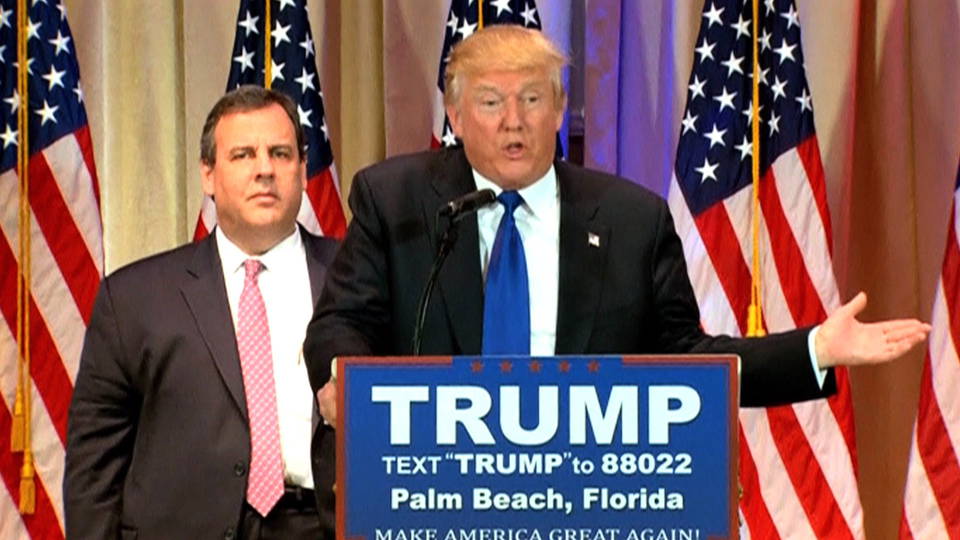
The biggest voting day of the presidential primary race was a big night for Democratic candidate Hillary Clinton and Republican candidate Donald Trump, who each won victories in seven states, along with a majority of delegates. Democrat Bernie Sanders won four, including his home state of Vermont, as well as Oklahoma, Minnesota and Colorado. Ted Cruz also won his home state of Texas, along with Oklahoma and Alaska. Meanwhile, Republican presidential candidate Marco Rubio scored his first victory in the race in Minnesota. We’ll go to Texas and Colorado for more on Super Tuesday results later in the broadcast.
TOPICS:
2016 Election
New York Court Rules Lawsuit Against Trump University to Go Forward

Super Tuesday’s results come as a New York appeals court has ruled a lawsuit against Donald Trump’s defunct for-profit school, Trump University, can go forward. New York Attorney General Eric Schneiderman filed the suit in 2013, arguing Trump University misrepresented itself and defrauded thousands of students out of up to $40 million total.
TOPICS:
2016 Election
Clinton Again Confronted over 1996 "Superpredator" Comments
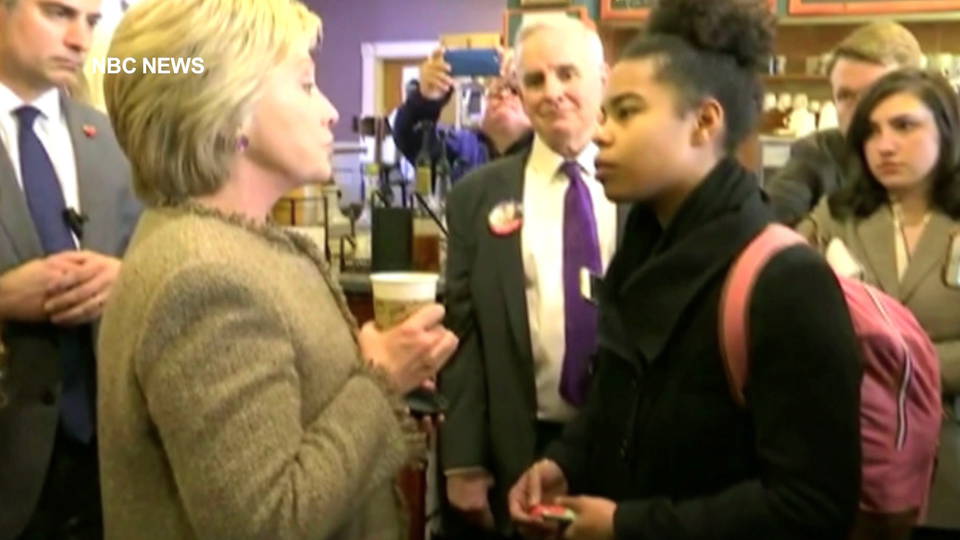
In more news from the campaign trail, Hillary Clinton has again faced questioning about her controversial 1996 comments about some black youth whom she called "superpredators." On Tuesday during a campaign stop in a coffee shop in Minneapolis, Clinton was confronted by a young Somali-American woman, who asked the former secretary of state about her superpredator comments. The quiet back-and-forth ended with Hillary Clinton growing frustrated and telling the young woman, "Well, why don’t you go run for something then?" This comes about a week after Black Lives Matter activist Ashley Williams confronted Hillary Clinton about her 1996 superpredator comment during a private fundraiser in Charleston, South Carolina.
TOPICS:
Hillary Clinton
2016 Election
Fox News' Bill O'Reilly Loses Custody of Kids Amid Accusations of Domestic Abuse
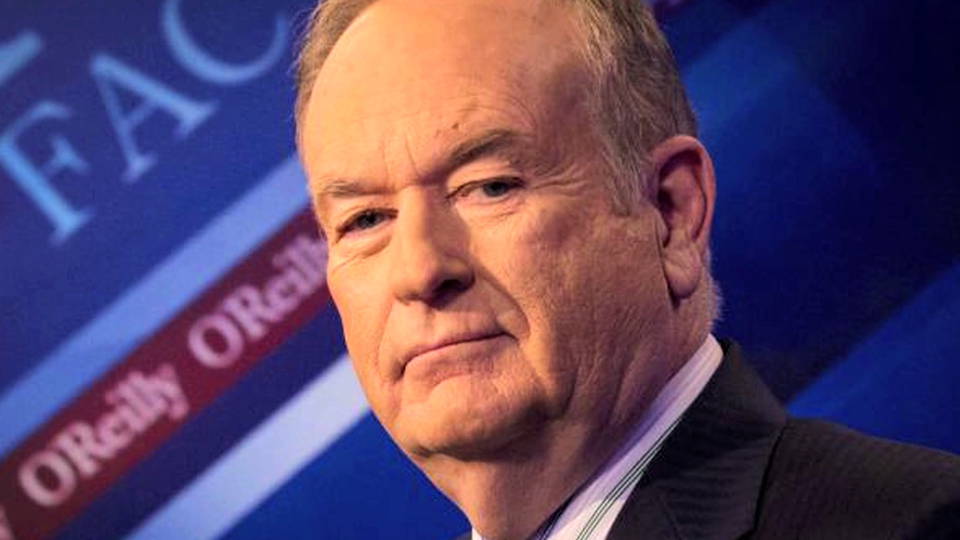
Fox News host Bill O’Reilly has lost residential custody of his two teenage children, following a lengthy custody battle during which his 17-year-old daughter told a forensic examiner that she watched O’Reilly dragging her mother down a staircase by her neck. Although the New York appeals court ruled O’Reilly’s two children should live solely with their mother, Maureen McPhilmy, O’Reilly maintains shared legal custody over them.
TOPICS:
Journalism
Domestic Violence
Supreme Court to Hear Most Significant Abortion Case in 20 Years
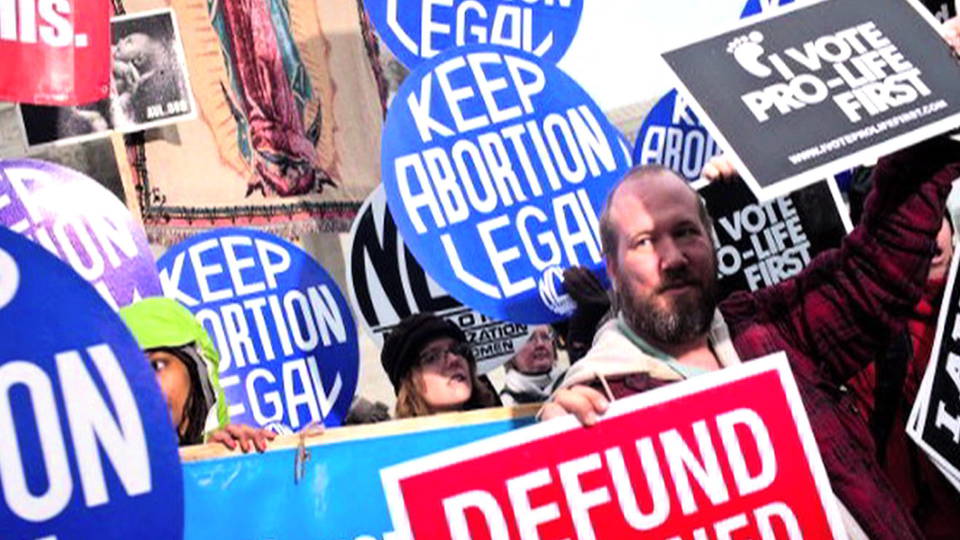
The Supreme Court is set to hear arguments today on the most important abortion rights case in more than 20 years. Texas abortion providers are challenging provisions of a sweeping anti-choice law passed in 2013 that has already shuttered about half of the state’s roughly 40 abortion clinics. With Justice Antonin Scalia’s death, the case faces the possibility of a 4-4 deadlock, which would leave a lower court’s decision upholding the restrictions in place, although it would not set a national precedent.
TOPICS:
Abortion
FBI Head Admits Unlocking San Bernardino Suspect's iPhone Would Set Precedent
FBI Director James Comey has acknowledged that forcing Apple to unlock the iPhone of the suspected San Bernardino shooter would set a precedent that could be used in other cases. James Comey responded to questioning by Virginia Representative Bob Goodlatte during a House Judiciary Committee hearing Tuesday.
TOPICS:
FBI
Domestic Surveillance
Domestic Spying
South Dakota Gov. Vetoes Transgender Bathroom Bill
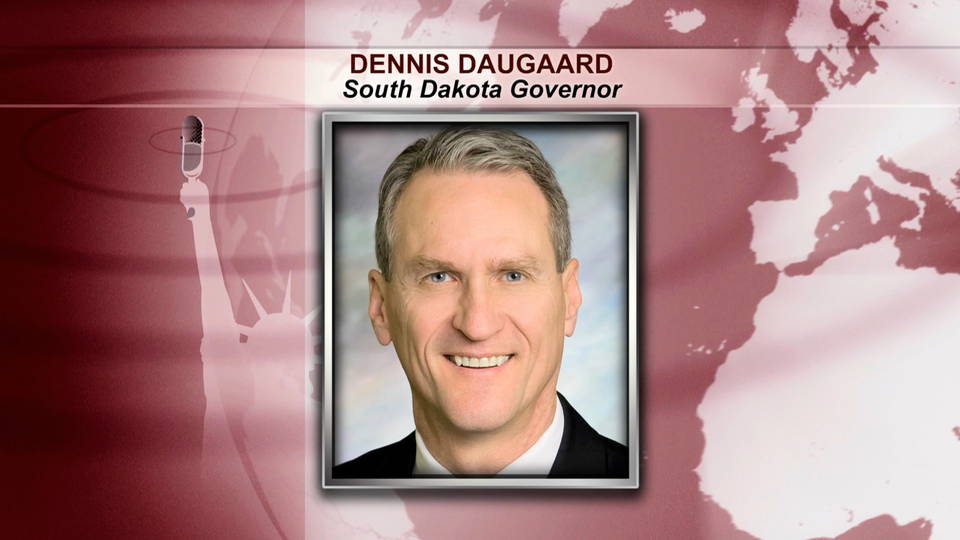
South Dakota’s Republican Governor Dennis Daugaard has vetoed a bill that would have banned transgender students from using the bathroom that corresponds to their gender identity. It was the first so-called "bathroom bill" to be passed by a state legislature. Tuesday’s veto comes after South Dakota transgender student Thomas Lewis delivered a petition with more than 80,000 signatures of people opposed to the bill.
TOPICS:
LGBT
Guatemala: Court Finds Ex-Officers Guilty of Forcing Women into Sexual Slavery
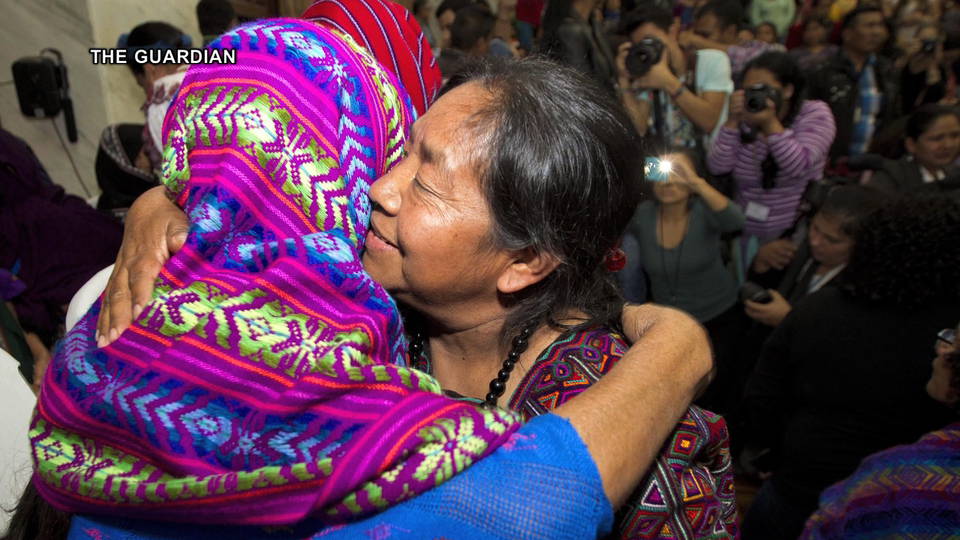
In a historic ruling in Guatemala, two ex-military officers have been found guilty of forcing 11 indigenous Mayan women into sexual slavery during the the U.S.-backed dirty wars of the 1980s. A former lieutenant colonel and a former paramilitary officer have been sentenced to a total of 360 years in prison. The trial comes after decades of organizing by Mayan women.
TOPICS:
Guatemala
Iraq: Officials Warn Mosul Dam Faces Risk of "Catastrophic" Collapse

In Iraq, U.S. officials are warning the country’s largest dam is facing an "unprecedented risk of catastrophic failure." The U.S. Embassy warns that if the Mosul dam collapses, hundreds of thousands of people would be at risk of drowning, and more than 1 million people would be displaced. Meanwhile, a spate of deadly suicide bombings by ISIL in Iraq have killed more than 130 people over the last few days.
TOPICS:
Iraq
2 Guilty of Attempting to Defraud U.S. Gov't in Iraq Contracts

In more news on Iraq, two employees of a U.S. military contractor have pleaded guilty to criminal charges related to contracting projects in Iraq. Neal Kasper and his wife Tiffany White of Laguna Construction Company were indicted for conspiring to defraud the U.S. government of more than $5 million. Kasper pleaded guilty to wire fraud and conspiracy to solicit kickbacks, while White pleaded guilty to wire fraud and tax charges. Kasper faces up to 20 years in prison.
TOPICS:
Iraq
Private Contractors
Afghanistan: Gen. John Nicholson Replaces Gen. John Campbell
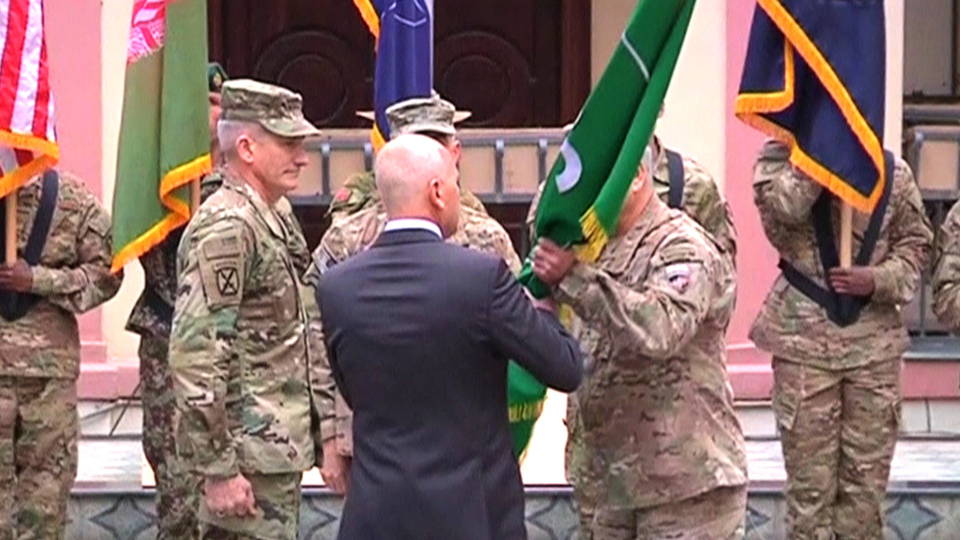
In news from Afghanistan, U.S. Army General John Campbell has stepped down as the commander of international forces in Afghanistan during a ceremony Wednesday. The incoming commander is General John Nicholson. During his Senate confirmation hearings in January, Nicholson said he envisions the U.S. military making an "enduring commitment" in Afghanistan. In more news from Afghanistan, Afghan authorities say at least nine people have died in two U.S. drone strikes in the eastern province of Nangarhar. This comes after 25 people died in U.S. drone strikes in the same region about a week ago.
TOPICS:
Afghanistan
Yemen: Thousands Protest U.S.-Backed, Saudi-Led Airstrikes
In Yemen, thousands of people took to the streets of the capital Sana’a Tuesday to protest the U.S.-backed, Saudi-led bombing campaign, after an airstrike killed 40 people in a market on Saturday. At the march, protester Hamid al-Bakhiti spoke out.
Hamid al-Bakhiti: "This march is a popular expression against the crime that was committed against shoppers in the popular market in Nihm district in northeastern Sana’a that the Saudi-led coalition wanted to declare as a victory."
Saturday’s airstrike came only two days after the European Parliament called on the European Union to impose an arms embargo against Saudi Arabia, amid increasing accusations the Saudi-led coalition is targeting Yemeni civilians. The Parliament vote comes after 750,000 European citizens signed a petition calling for the suspension of weapon sales to Saudi Arabia.
TOPICS:
Yemen
Last Surviving Veteran of Abraham Lincoln Brigade Dies at 100
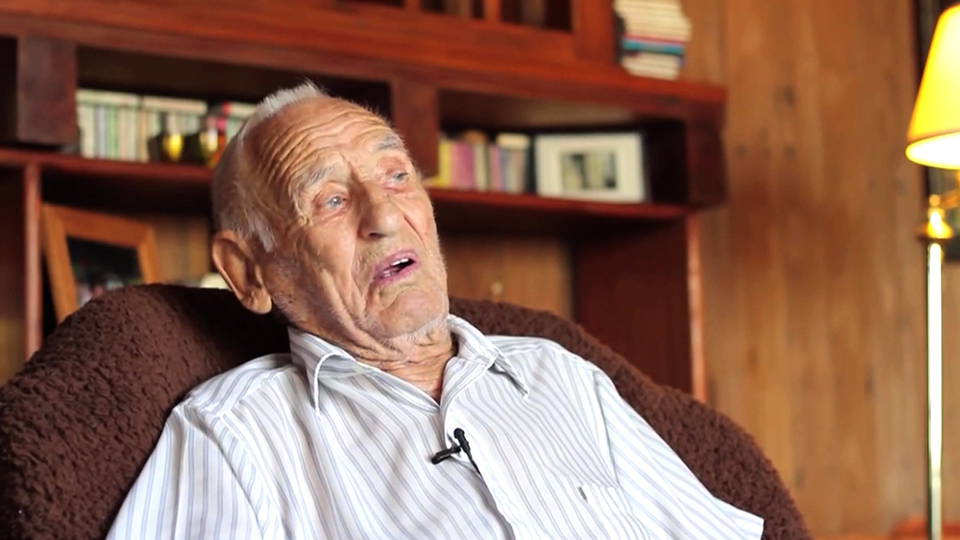
And Delmer Berg, the last known surviving veteran of the Abraham Lincoln Brigade, has died in his home in California at the age of 100. Berg was one of about 2,800 U.S. volunteers who traveled to Spain to fight against the fascist dictator Franco during the Spanish Civil War. Berg was also a longtime labor organizer, who worked with the United Farm Workers. He recalled his decision to fight in Spain in an interview in 2013.
Delmer Berg: "I was very affected by the fascist attempt to take over in Spain. So, I bought out of the Army. Then I didn’t know how to get to Spain, 'til one day I was going to work in Hollywood as a dishwasher in the Hollywood Roosevelt Hotel, and I see on the side of a building: ’Friends of the Abraham Lincoln Brigade.' I turned the corner, went up there, told them, 'I want to go to Spain.'"
Donate today:
Follow:

Calls Grow for Wendy's to Join Fair Food Program as Coalition Plans Major Protest of Fast-Food Giant
COLUMN

Broadcast Engineer
Director of Finance and Operations
Director of Development
---------------------
Democracy Now! Daily Digest: A Daily Independent Global News Hour with Amy Goodman & Juan González for Tuesday, March 1, 2016
democracynow.org
Stories:

Robert Reich: Donald Trump Isn't a Conservative, He is an Authoritarian
Commenting on the rise of Republican front-runner Donald Trump, Robert Reich, former labor secretary under President Clinton, notes, "I don’t think Donald Trump is a conservative. I think he’s an authoritarian. And there is a difference. I don’t think he cares about democracy. … In fact, I think that Donald Trump, from everything he’s said, may view democracy as an impediment to what he wants to do." Reich adds, "It’s particularly dangerous when we don’t have strong mediating institutions, such as labor unions and other organizations … that can soften and subdue or in any way reduce the influence of an authoritarian when so many people in America now feel so atomized, so isolated."
TRANSCRIPT
This is a rush transcript. Copy may not be in its final form.
AMY GOODMAN: Finally, Robert Reich, with the rise of Donald Trump, your thoughts? From his retweeting Benito Mussolini to wavering around whether he wants the Klan’s support or David Duke’s, to building the wall, to saying Muslims shouldn’t be allowed to come into this country, your thoughts?
ROBERT REICH: I don’t think Donald Trump is a conservative. I think he’s an authoritarian. And there is a difference. I don’t think he cares about democracy. I don’t think he cares. In fact, I think that Donald Trump, from everything he’s said, may view democracy as an impediment to what he wants to do. I think he’s very close to some of the other authoritarians who have shown themselves, both in American history and in history around the rest of the world.
This is a very dangerous attitude. It’s particularly dangerous when we don’t have strong mediating institutions, such as labor unions or other organizations and political parties, that can soften and subdue or in any way reduce the influence of an authoritarian when so many people in America now feel so atomized, so isolated, when so many people are getting their news and expressing themselves on twitters. Without intermediary institutions, this kind of authoritarian power grab is particularly dangerous.
AMY GOODMAN: Robert Reich, we want to thank you for being with us, former labor secretary under President Bill Clinton, now endorsing Senator Bernie Sanders for president.
ROBERT REICH: Thank you, Amy.
AMY GOODMAN: Robert Reich is professor at the University of California, Berkeley, author of many books, his latest, Saving Capitalism: For the Many, Not the Few.
And that does a for our broadcast. If you’d like to get a copy, go to democracynow.org. Democracy Now! is hiring three jobs: broadcast engineer, director of finance and operations and director of development. Go to our website. ... Read More →

"We Must & Can Aim High": Former Clinton Labor Secretary Robert Reich on Endorsing Bernie Sanders
We speak with Robert Reich, the former labor secretary under President Bill Clinton from 1993 to 1997, about his decision to formally endorse Senator Bernie Sanders for president on the Democratic ticket. "What worries me about other candidates, particularly Hillary Clinton, is that the message seems to be we cannot aim high, or we must not be ambitious, we must not try to be bold, because we can’t get there. That, to me, is exactly the wrong message," Reich says. "In terms of mobilizing Americans and organizing and getting the kind of response we need from Americans to push Congress, to change Congress, to get a government that is responsible for us, the message should be we must and can aim high. We can do it. And we’ve done it before in this country." This comes as four top economists and former advisers for Presidents Barack Obama and Bill Clinton have issued an open letter to Senator Sanders criticizing his economic platform. Reich is the author of many books, mostly recently, "Saving Capitalism: For the Many, Not the Few."
TRANSCRIPT
This is a rush transcript. Copy may not be in its final form.
AMY GOODMAN: As we turn right now to the Democrats, we’re going to turn now to an endorsement that might surprise many. We continue today’s show on Super Tuesday, the biggest primary day in the presidential race, as we turn to the Democratic race between Vermont Senator Bernie Sanders and former Secretary of State Hillary Clinton. Following her commanding win in South Carolina, Clinton now leads Bernie Sanders in six of the 11 states voting today—in Alabama, Arkansas, Georgia, Tennessee, Texas and Virginia. Sanders, meanwhile, has an overwhelming lead in Vermont. And four remaining states are up for grabs—Massachusetts, Minnesota, Oklahoma, Colorado—as well as the territory American Samoa.
About 880 delegates are at stake in today’s contests. Clinton has secured 91 regular delegates; Sanders has 65. But Clinton vastly leads Sanders in pledged support from superdelegates—the congressmen, senators, governors and other elected officials who are free to support either candidate and who often represent the Democratic Party elite. According to The New York Times delegate tracker, Clinton now has the support of 455 superdelegates, while Sanders has only 22 superdelegates. Now, again, those superdelegates can flip at any point. They are not obligated to stick with their original endorsement.
Well, on Friday, one of the former members of Bill Clinton’s Cabinet made headlines when he announced he is supporting Bernie Sanders. Robert Reich is the former labor secretary and author of many books, mostly recently, Saving Capitalism: For the Many, Not the Few. Although Secretary Reich served as labor secretary under President Bill Clinton, he broke with his support for the Clintons, writing, quote, "This extraordinary concentration of income, wealth, and political power at the very top imperils all else."
Robert Reich, welcome back to Democracy Now! Thanks for joining us from the University of California, Berkeley, studios, the University of California where you teach.
ROBERT REICH: Hi, Amy.
AMY GOODMAN: It’s good to have you with us. So, talk about this official endorsement, that may have taken many by surprise.
ROBERT REICH: Well, I don’t know why it should take anybody by surprise. I’ve been talking about the increasing concentration of income and wealth, and the political power that comes with increasingly concentrated income and wealth, for many, many years. And the problem is that it’s not getting better, it’s getting worse, unless we have a mobilization, a real movement, to get big money out of politics and to cure up—to kind of deal with this, this imbalance in our economy. It’s not going to be remedied on its own. And that’s why I support Bernie Sanders. He’s leading a movement to reverse what we have seen in terms of income and wealth at the top, and also leading the same kind of movement—and it really is the same thing—to get big money out of politics.
AMY GOODMAN: I want to turn to a quote of a letter that was released by a number of economists. I want to read from an open letter to Senator Sanders from four of the former chairs of the Council of Economic Advisers for President Barack Obama and Bill Clinton. Earlier this month, they wrote, quote, "We are concerned to see the Sanders campaign citing extreme claims by Gerald Friedman about the effect of Senator Sanders’s economic plan—claims that cannot be supported by the economic evidence. Friedman asserts that your plan will have huge beneficial impacts on growth rates, income and employment that exceed even the most grandiose predictions by Republicans about the impact of their tax cut proposals.
"As much as we wish it were so, no credible economic research supports economic impacts of these magnitudes. Making such promises runs against our party’s best traditions of evidence-based policy making and undermines our reputation as the party of responsible arithmetic. These claims undermine the credibility of the progressive economic agenda and make it that much more difficult to challenge the unrealistic claims made by Republican candidates."
Can you respond to what they’ve said?
ROBERT REICH: Well, they’re entitled to their opinion, Amy, but I respectfully disagree. Bernie Sanders is claiming—and Gerald Friedman, professor Gerald Friedman, an economist, backing him up, is claiming—that he could, because of his proposals, such as a single-payer plan, get economic growth up to 5.3 percent—that’s not out of the historic dimension of what’s possible; in fact, in the early 1980s, we had 5.3, almost 5.4, percent economic growth—and also get unemployment down to 3.9 percent or 3.8 percent—again, not out of historic possibility. In fact, that’s what was the approximate rate in the late 1990s.
And the reason that Bernie Sanders is claiming this, and the reason this is credible, is because a single-payer plan would have extraordinarily positive effects on the economy. We are now paying—well, healthcare is about 18 percent of the entire economy. If we actually did move to the single-payer plan, that would generate huge productivity increases that would free up resources in our economy and generate the possibilities for economic growth and also low unemployment of a sort that we see in that plan’s projections.
AMY GOODMAN: The people who wrote this, Austan Goolsbee, University of Chicago Booth School; Alan Krueger, Princeton; you have Christina Romer from your school, University of California, Berkeley, chair of the Council of Economic Advisers, 2009 to '10; and Laura Tyson, as well, also from your school. You're saying they’re all wrong?
ROBERT REICH: I’m saying I disagree with them. I mean, it’s not just me. Professor James Galbraith of the University of Texas, who was the executive director of the Joint Economic Committee in Congress—and that is the corresponding unit to the Council of Economic Advisers—agrees with Gerald Friedman and me that these projections are within the range of possibility, for exactly the reasons I gave you, that when you’re talking about a very large and ambitious program—in this case, a single-payer plan—you can get those kinds of very, very large and positively ambitious results.
AMY GOODMAN: In February, I interviewed Madeleine Kunin, the former governor of Vermont for three terms, from ’85 to ’91. She wrote the book, The New Feminist Agenda: Defining the Next Revolution for Women, Work, and Family. And I asked her about her op-ed in The Boston Globe. It was headlined "When Bernie Sanders Ran Against Me in Vermont."
MADELEINE KUNIN: I agree with what he says in principle, but how do you make it a reality? You know, how do we have an effective president of the United States? The word "revolution" is beautiful. You know, I’d like a revolution myself. I mean, the title "revolution" is in my book, The New Feminist Agenda, about women’s issues. But I think you have to say, "Who’s going to make it happen? Who can have the temperament to be president? Who can have the networks? Who can be collegial?"
You know, research has shown that women—and you see it in the United States Senate—they work well with each other. They work across party lines. They do their homework. And, you know, I’ve been involved in the women’s movement all of my life. And when—you know, we were told, to make it in the man’s world, you’ve got to play the game, while you’re changing how the game is played. And that’s what she is doing.
AMY GOODMAN: Can you respond to Governor Madeleine Kunin?
ROBERT REICH: Well, I’ve heard Governor Kunin and others say that this kind of radical change, a revolutionary change in our politics that Bernie Sanders is calling for, is not possible, or it is wishful thinking. I’ll tell you my response. And if you look at the civil rights movement, you look at way back in our history, the movement of women to get the vote, look at any major change in the power structure of America, or even the movement to end the Vietnam War, they were all movements. They were all mass mobilizations. People in the United States decided that they had had enough and they were going to change the structure of power in the United States. Bernie Sanders is leading exactly that kind of movement to get big money out of politics.
And, Amy, I don’t know how else to do it. I mean, I was there. I was in the Clinton administration; I have been in a Cabinet. I can tell you that unless good people outside the United States—rather, good people outside Washington are mobilized and organized and energized to make change happen, it doesn’t matter how good the people are in Washington, nothing is going to change, because the special interests are going to dominate. You need that kind of mobilization in order to get change. And Bernie Sanders is doing exactly that.
AMY GOODMAN: We’re going to break and then come back to this discussion. Our guest is Robert Reich, the former labor secretary under President Clinton, now professor at University of California, Berkeley, author of many books, most recently, Saving Capitalism: For the Many, Not the Few. This is Democracy Now! It’s Super Tuesday. We’ll be back in a minute.
[break]
AMY GOODMAN: "O Fortuna" performed by Mozarteum Orchestra Salzburg and Kurt Prestel. This is Democracy Now!, democracynow.org, The War and Peace Report. I’m Amy Goodman. This is Super Tuesday. I want to turn to a clip from the Sanders-Clinton debate earlier this month in Milwaukee. During one exchange about healthcare, Hillary Clinton continued to press the idea that Bernie Sanders’ single-payer healthcare system would undo the Affordable Care Act.
HILLARY CLINTON: Last week in a CNN town hall, the senator told a questioner that the questioner would spend about $500 in taxes to get about $5,000 in healthcare. Every progressive economist who has analyzed that says that the numbers don’t add up. And that’s a promise that cannot be kept. And it’s really important, now that we are getting into the rest of the country, that both of us are held to account for explaining what we are proposing, because especially with healthcare, this is not about math, this is about people’s lives. And we should level with the American people about what we can do to make sure they get quality, affordable healthcare.
AMY GOODMAN: That was Hillary Clinton in a debate with Bernie Sanders. We’re joined by Robert Reich, the former labor secretary under President Bill Clinton. And certainly, Robert Reich, this was an issue that Hillary Clinton was dealing with through the Bill Clinton presidency. Can you talk about her criticism of Bernie Sanders around pushing for single-payer healthcare?
ROBERT REICH: Yeah, well, I think that criticism centers around the worry that it is somehow going to lead to the destruction of the Affordable Care Act. I frankly don’t understand that, Amy. In fact, there are states like, for example, Vermont, that are and have considered putting a single-payer plan on the exchanges that people use under the Affordable Care Act—that is, using the Affordable Care Act as a launching pad for a single-payer plan.
Many health economists, many of us who do policy, think that a single-payer plan is almost inevitable in this country, because it is so much more efficient, because it reduces costs and also provides very high-quality care. Most other advanced nations have it. We are paying so much in this country for a healthcare system based on private, for-profit insurance, where so much of that money goes to advertising and promotion and administration and billing and CEO pay. This is absurd.
And as baby boomers get older and need more medical assistance, we’re not going to be able to afford the kind of healthcare system we have right now. And that’s why a single-payer plan is critical. That’s why Bernie Sanders wants to move to it. And it’s not going to jeopardize the Affordable Care Act. There can be just—you can make, as Barack Obama almost did, a kind of Medicare-for-all or a single-payer option.
AMY GOODMAN: So let’s go to Bernie Sanders in that same debate with Hillary Clinton.
SEN. BERNIE SANDERS: Here’s the reality, folks: There is one major country on Earth that does not guarantee healthcare to all people. There is one major country, the United States, which ends up spending almost three times per capita what they do in the U.K. guaranteeing healthcare to all people, 50 percent more than they do in France guaranteeing healthcare to all people, far more than our Canadian neighbors, who guarantee healthcare to all people. Please do not tell me that in this country, if—and here’s the "if"—we have the courage to take on the drug companies and have the courage to take on the insurance companies and the medical equipment suppliers, if we do that, yes, we can guarantee healthcare to all people in a much more cost-effective way.
AMY GOODMAN: So that’s Senator Sanders talking about Medicare for all. But the question, Robert Reich, is—and this goes to the whole attack Hillary Clinton has waged against Bernie Sanders around, you know, waging a revolution, but how do you get there—how do you get there from here? How do you get to Medicare for all? If he were president, could he actually accomplish this? And you’ve been in the government. You were under the Clintons. Can you talk about how this would—what the pathway would be?
ROBERT REICH: I think the pathway, Amy, is very much the same pathway of getting big money out of politics. It is mobilization of people outside Washington. It’s getting the public to focus on what is important, and it is exercising that kind of leadership—also, aiming high. What worries me about other candidates, particularly Hillary Clinton, is that the message seems to be we cannot aim high, or we must not be ambitious, we must not try to be bold, because we can’t get there. That, to me, is exactly the wrong message. The message should be—in terms of mobilizing Americans and organizing and getting the kind of response we need from Americans to push Congress, to change Congress, to get a government that is responsible for us, the message should be we must and can aim high. We can do it.
And we’ve done it before in this country. We’ve had some very, very ambitious—and vicious—changes. You know, I lived through the civil rights era. I saw what activists like Martin Luther King Jr. and presidents like Lyndon Johnson were able to do. And we have to—you know, the urgency right now with regard to everything we consider important, from Black Lives Matter and the kind of discrimination, structural discrimination, we’re seeing, all the way through climate change, nothing can change unless we get big money out of politics, unless we return the United States from being almost an oligarchy to a true democracy once again. That’s what Bernie Sanders is talking about. I can’t understand why anybody would find that difficult or objectionable.
AMY GOODMAN: Well, you know, Robert Reich, you have an inside view of the Clinton administration. You were the labor secretary for years. Can you talk about the power of Hillary Clinton within that? I mean, there are a lot of presidencies where the president, who is the husband—you don’t know really what the wife’s views are. How powerful was Hillary Clinton within the Bill Clinton presidency?
ROBERT REICH: She was his chief adviser. I think that Hillary Clinton was as powerful, if not more powerful, than any first lady since Eleanor Roosevelt. And Hillary was continuously helping Bill Clinton make very, very fundamental decisions.
AMY GOODMAN: At a South Carolina fundraiser in Charleston, a young African-American woman, Ashley Williams, criticized—interrupted the fundraiser. A friend had paid the $500 for her to get into this protest. And she was saying, "I am not a superpredator." And this goes to the whole issue of criminal justice under the Clinton presidency. Can you talk about this and mass incarceration and the number of African Americans in prison, and how that relates to the Clinton presidency? This goes also to Michelle Alexander, who has written extensively about this and wrote a major piece in The Nation against Hillary Clinton, saying that it was under the Clintons—and held both responsible—that mass incarceration, we saw such an escalation, because of the policies put in place.
ROBERT REICH: Yes, I want to say, Amy—first of all, I want to say that I don’t think it’s entirely fair to hold somebody responsible, even if they are first lady, and even if they were a powerful first lady, for what their husbands did in office 20 ago. I think that’s a little bit of a stretch. There’s no question that Bill Clinton, on mass incarceration, that crime bill, also on welfare reform—so-called, which really was a very draconian welfare program, that subsequently showed itself to be very cruel to a lot of poor people in America—and thirdly, on some of the foreign policy that Bill Clinton got into—I think it’s unfair to hold Hillary responsible, even though she was a very powerful adviser. We don’t know which way she argued in those particular cases.
AMY GOODMAN: Well, on the issue of superpredators, she herself admits—and, of course, there’s video of her talking about superpredator children.
ROBERT REICH: Yeah, well, undoubtedly, on certain of those, she was—she was helping her husband. All I want to say is that I think that she’s got to be evaluated on her own merits, in terms of what she has done and what she has accomplished, what she has not accomplished, what she has said in this campaign, what we understand about her values. And I’ve known here, you know, for 49 years. I met her when she was 19 years old. I have a lot of confidence in her abilities. I think she’s very, very experienced.
I don’t think—you know, I think if she is president, she will do a job a thousand times better than any of the Republican clowns who are now running. But I think we do have a choice on the Democratic side between two people who are very different in terms of their ambitions with regard to remaking our democracy and remaking American politics, and also attacking this kind of economic oligarchy we now have.
AMY GOODMAN: Secretary Reich, what do you see—
ROBERT REICH: And I don’t think Hillary is willing to take that on.
AMY GOODMAN: What do you see is Bernie Sanders’ pathway to the presidency right now?
ROBERT REICH: He said last night that he is going to continue to take this all the way to the convention. And I believe that he sees himself as a vehicle for this movement. In other words, this campaign is less about Bernie Sanders, for Bernie Sanders—and he would be the first to admit this—than it is about a movement against American oligarchy and against big money in politics. And he, therefore, by saying that he’s going to take it all the way to the convention, I think he means he’s going to take this movement all the way to the convention. And hopefully it’s going to be, regardless of what happens, regardless of whether he has enough convention delegates, it is going to be a very vocal and very important movement in the future.
Amy, finally, let me just say, the superdelegate problem is a huge kind of symbol of what we are up against in this country. The Democratic Party has all these insider superdelegates. You’re right, they could change their mind at any time. But merely having superdelegates, who are insiders, who will play such a significant role at the convention, is testament to the fact that the Democratic Party still doesn’t quite get it, in terms of this antiestablishment era we are now entering in America, where most Americans are saying the political establishment has not worked for us. ... Read More →

Super Tuesday: Amid Protests over Racism, Donald Trump Appears Poised to Triumph in Key Contests
Super Tuesday has arrived, the biggest primary day in the presidential race. Republicans and Democrats each go to the polls in 11 states. Billionaire Donald Trump could win as many as eight of the 11 states. He has won three out of the four caucuses and primaries to date. This comes as his campaign is under increasing fire after he at first refused to disavow an endorsement from David Duke, a prominent white supremacist and former KKK leader. Trump’s comments have prompted several rounds of protests during his recent rallies. On Monday, he reportedly ordered Secret Service agents to remove about 30 black students from his rally in Georgia who were quietly standing on the bleachers. At another Trump rally on Monday in Virginia, black students who chanted "No more hate! No more hate! Let’s be equal! Let’s be great!" were also removed. "You could write these things off before as hate speech, as vile, as disgusting rhetoric that he supported," says Mychal Denzel Smith, a writer for The Nation, "but now [Trump] is going to be in a position where he could very well be the person to exercise that sort of hate speech and vile rhetoric with institutional power backing him." Smith’s new article is "Trump’s Racism Didn’t Scare Me. Now It Does."
TRANSCRIPT
This is a rush transcript. Copy may not be in its final form.
AMY GOODMAN: Super Tuesday has arrived, the biggest primary day in the presidential race. Republicans and Democrats each go to the polls in 11 states. About a quarter of all delegates are at stake. The five Republican presidential candidates will compete in contests in Alabama, Alaska, Arkansas, Georgia, Massachusetts, Minnesota, Oklahoma, Tennessee, Texas, Virginia and Vermont. Democratic voters will decide between their two candidates in similar states, except Alaska, but also in Colorado and American Samoa.
Recent polls show billionaire Donald Trump could win as many as eight of the 11 states. Trump has won three out of the four caucuses and primaries to date. His lead heading into today’s contests comes as his campaign is under increasing fire after he refused to disavow an endorsement from David Duke, a prominent white supremacist and former KKK leader. This is Donald Trump speaking Sunday in an interview with CNN’s Jake Tapper.
DONALD TRUMP: Well, just so you understand, I don’t know anything about David Duke. OK? I don’t know anything about what you’re even talking about with white supremacy or white supremacists. So, I don’t know. I mean, I don’t know—did he endorse me, or what’s going on, because, you know, I know nothing about David Duke. I know nothing about white supremacists. And so, when you’re asking me a question, that I’m supposed to be talking about people that I know nothing about.
JAKE TAPPER: But I guess the question from the Anti-Defamation League is—even if you don’t know about their endorsement, there are these groups and individuals endorsing you. Would you just say, unequivocally, you condemn them, and you don’t want their support?
DONALD TRUMP: Well, I have to look at the group. I mean, I don’t know what group you’re talking about. You wouldn’t want me to condemn a group that I know nothing about. I’d have to look. If you would send me a list of the groups, I will do research on them, and certainly I would disavow if I thought there was something wrong.
JAKE TAPPER: The Ku Klux Klan?
DONALD TRUMP: But you may have groups in there that are totally fine, and it would be very unfair. So give me a list of the groups, and I’ll let you know.
JAKE TAPPER: OK, I mean, I’m just talking about David Duke and the Ku Klux Klan here, but...
DONALD TRUMP: I don’t know any—honestly, I don’t know David Duke. I don’t believe I’ve ever met him.
AMY GOODMAN: Trump later posted a video on Twitter of himself disavowing David Duke. He told the Today Show his refusal to disavow Duke on a, quote, "very bad earpiece"—that’s what he blamed it on.
Trump’s comments have prompted several rounds of protests during his recent rallies. On Monday, he reportedly ordered Secret Service agents to remove about 30 black students from his rally in Georgia who were quietly standing on the bleachers. They were told to leave the GOP front-runner’s event. At another Trump rally on Monday in Virginia, black students were removed after they chanted "No more hate! No more hate! Let’s be equal! Let’s be great!" As the protesters were being ejected, Trump complained they had interrupted him, and asked, quote, "Are you from Mexico?"
Meanwhile, Trump’s campaign has also come under fire from high-level military officials, including former CIA Director Michael Hayden. Hayden told HBO’s Bill Maher if Trump were elected president, it’s possible U.S. military officials would refuse to follow his orders. Trump has pledged to reinstate forms of torture, including waterboarding, and other practices he said were, quote, "so much worse." He has also repeatedly called for killing the family members of terrorists—a practice that violates the Geneva Conventions.
Well, to discuss Trump’s campaign, we’re joined by two guests. In Washington, D.C.—right here in New York, we’re joined by Mychal Denzel Smith, who is a writer for The Nation, whose latest piece is "Trump’s Racism Didn’t Scare Me. Now It Does." And Zaid Jilani joins us from Washington, staff reporter at The Intercept. His new article is "Neoconservatives Declare War on Donald Trump."
We welcome you both to Democracy Now! Mychal, let’s begin with you. So you say Trump’s racism didn’t scare you, now it does. What’s changed for you, Mychal?
MYCHAL DENZEL SMITH: He started winning. He started to be a viable candidate for the presidency. He—at first, you know, we all sort of wrote him off as a sideshow, as a distraction to who was going to be the actual Republican nominee, that he was just a form of entertainment and his hubris was allowing him to stay in this race. But the longer this has gone on and the more support that he’s garnered and the more fervor that he’s excited and aroused in sort of the aggrieved white man space, he has become the front-runner and, as it shakes out, right now is the likely nominee, given that he’s already won three states and looking to sweep or to get a lot of wins today on Super Tuesday. It’s going to be—it’s likely to be Trump. And what bothers me about that is that, you know, you could write these things off before as hate speech, as vile, as disgusting rhetoric that he supported, but now he is going to be in a position where he could very well be the person to exercise that sort of hate speech and vile rhetoric with institutional power backing him.
AMY GOODMAN: I wanted to go for a second to another of the controversies. I mean, there are many. We were just talking about David Duke and the KKK, whether or not he disavowed their support for him. Well, Donald Trump also declined to distance himself from a Benito Mussolini quote he had retweeted. And on Sunday, Chuck Todd of NBC’s Meet the Press questioned Trump about the tweet.
CHUCK TODD: Right now on Twitter, there is a trending retweet of yours. You retweeted somebody from @ilduce2016. It was a Mussolini quote, but you didn’t know it was Mussolini when you retweeted it. It said, "It is better to live one day as a lion than 100 years as a sheep." That’s a famous Mussolini quote. You retweeted it. Do you like the quote? Did you know it was Mussolini?
DONALD TRUMP: Sure. It’s OK to know it’s Mussolini. Look, Mussolini was Mussolini. It’s OK to—it’s a very good quote. It’s a very interesting quote. And I know it—I saw it. I saw what—and I know who said it. But what difference does it make whether it’s Mussolini or somebody else? It’s certainly a very interesting quote.
CHUCK TODD: Well—
DONALD TRUMP: That’s probably why I have—
CHUCK TODD: Mussolini is a known fascist.
DONALD TRUMP: —between Facebook and Twitter, 14 million people, and other people don’t.
CHUCK TODD: Do you want to be associated—do you want to be associated—
DONALD TRUMP: It’s a very interesting quote, and people can talk about it.
CHUCK TODD: Do you want to be associated with a fascist?
DONALD TRUMP: No, I want to be associated with interesting quotes.
AMY GOODMAN: That was Donald Trump defending retweeting the quote of the fascist Italian dictator Benito Mussolini. Mychal Denzel Smith?
MYCHAL DENZEL SMITH: Well, this just speaks to the sort of ignorance that Donald Trump does represent. This is a man that is of unremarkable intelligence. He does not know that that’s a Mussolini quote. And he does not care also. That’s the—that’s the bigger problem, is that he doesn’t care about the idea of truth or consistency or anything. And it appeals to people. It is winning over an electorate. It is turning out people who identify with that. And that’s troubling to me that we have this sort of regression in our politics, that Donald Trump can sort of proudly be ignorant and still be the Republican front-runner.
AMY GOODMAN: You know, this discussion of the Klan and David Duke, it becomes sort of run-of-the-mill. But talk about what this group is, the Klan and David Duke, and what they represent.
MYCHAL DENZEL SMITH: The KKK is a terrorist organization. It’s the domestic terrorist organization that has existed in the United States since the end of slavery. And they have terrorized black bodies throughout their existence. That was their whole purpose, is to—like at the onset of Reconstruction, their formation was to ensure that the rights that black people were now being afforded, under the 13th, 14th and 15th Amendment and the Civil Rights Act of that time, were to ensure that white supremacy reigned supreme, particularly in the Southern states, where black people were making great strides. And that’s been the history. It’s been a history of lynching and cross burnings and violent intimidation at the polls. And then you have the sort of modern KKK with David Duke, who has tried to make them a political force and has run for office. And he is—until Trump, he was the most nakedly racist candidate for office that we had seen for some time. And now Trump has sort of reinvigorated that.
AMY GOODMAN: It’s interesting. In 2000, Trump said in The New York Times he was declining to run for president as a member of the Reform Party because it, quote, "now includes a Klansman, Mr. Duke. ... This is not company I wish to keep," he said. Also in The New York Times, a report published in 1927 about brawls in New York between Italian fascists and the Ku Klux Klan mentions the arrest of Fred Trump, Donald Trump’s father.
MYCHAL DENZEL SMITH: Yeah, he has long connections to the Klan. But, I mean, he can disavow it in sort of that moment, because it was politically like feasible for him to do it then, but now he has aroused the support of the people that will—that do support David Duke and believe in the message of the Ku Klux Klan. And he can’t do it anymore if he intends to win, because that’s his base. That’s who he has turned out to the polls. And that’s a frightening thing to think, that the Republican front-runner is running a racist campaign and winning.
AMY GOODMAN: We’re going to break and then come back to this discussion. We’ll also be joined by Zaid Jilani of The Intercept. This is Democracy Now!, democracynow.org, The War and Peace Report. Back in a minute. ... Read More →

Donald Trump Wants to Commit War Crimes and Neocons Still Think He's Too Moderate
Republican front-runner Donald Trump’s campaign has come under fire from high-level military officials, including former CIA Director Michael Hayden, who has said if Trump were elected president, it is possible U.S. military officials would refuse to follow his orders. Trump has pledged to reinstate forms of torture, including waterboarding, and other practices he said were "so much worse." He has also repeatedly called for killing the family members of terrorists—a practice that violates the Geneva Conventions. We speak with Zaid Jilani, staff reporter at The Intercept, who argues the pledges Trump made about torture are "flatly illegal," but past presidents have also disobeyed and disavowed international law. His new article is "Neoconservatives Declare War on Donald Trump." We also speak with Mychal Denzel Smith, Knobler fellow at The Nation Institute and a contributing writer for The Nation magazine.
TRANSCRIPT
This is a rush transcript. Copy may not be in its final form.
AMY GOODMAN: This is Democracy Now!, democracynow.org, The War and Peace Report. I’m Amy Goodman. This is the biggest primary caucus day of the year, of this presidential campaign. Democrats and Republicans each will vote in 11 states. Democrats will also vote in American Samoa. We’re talking about Donald Trump in this presidential election. Last year, he faced criticism after a town hall in New Hampshire when, during a Q&A, one of his supporters stood up and said President Obama is a Muslim and not even an American, and asked when the United States could get rid of Muslims.
DONALD TRUMP: OK, this man. I like this guy.
TRUMP SUPPORTER: I’m from White Plains. Amen, OK? We have a problem in this country. It’s called Muslims. We know our current president is one.
DONALD TRUMP: Right.
TRUMP SUPPORTER: You know he’s not even an American. Birth certificate, man.
DONALD TRUMP: We need this question; this is the first question.
TRUMP SUPPORTER: But anyway, we have training camps brewing where they want to kill us.
DONALD TRUMP: Mm-hmm.
TRUMP SUPPORTER: That’s my question: When can we get rid of them?
DONALD TRUMP: We’re going to be looking at a lot of different things. And, you know, a lot of people are saying that, and a lot of people are saying that bad things are happening out there. We’re going to be looking at that and plenty of other things.
AMY GOODMAN: We’re joined by Mychal Denzel Smith of The Nation, and, as well, we’re bringing into the conversation Zaid Jilani, a staff reporter at The Intercept whose new piece is headlined "Neoconservatives Declare War on Donald Trump."
We welcome you to Democracy Now! Zaid, talk about what exactly—who you’re referring to and what it means to declare war on Trump.
ZAID JILANI: Well, there’s definitely a faction of the Republican Party who has basically held, you know, the foreign policy of the party hostage for, I’d say, maybe at least 15 or 20 years. I mean, we’re not talking about the realists that were—the realists that were in charge under the George H.W. Bush administration or the Reagan administration. Instead, we’re talking about folks that came in under George W. Bush—you know, the Elliott Abrams, the Dick Cheneys of the world, the Paul Wolfowitzes and Donald Rumsfelds of the world. And, you know, these folks, they just don’t trust Trump. I mean, Trump denounced the Iraq War as a mistake, as actually a war based on lies, right before the South Carolina debate. And yet he was—you know, he won that primary. He won it, actually, resoundingly. And then, you know, at another point, he declared that the United States should be neutral in the Israeli-Palestinian conflict, which is a position that would go in line with sort of the old mainline, realist Republicans, but certainly doesn’t have a place in the current Republican Party. He was denounced angrily by Rubio and Cruz. And apparently it has done nothing on his approval ratings and has done nothing on his electability.
So it’s not surprising now that we see a lot of sort of mainline neocons, people like Robert Kagan, Max Boot—we saw the Emergency Committee for Israel start running ads against Donald Trump—and a lot of big neocon funders, like Paul Singer, who was mentioned in your intro piece, one of the vulture funders—a lot of them are pouring money into Marco Rubio’s campaign, pouring money into attacking Donald Trump. And it’s really not doing that much. And it really raises the question: Do Republican voters really want a really angry, bellicose, militaristic foreign policy? You know, are they as extreme in that arena as portrayed? And the answer is that they may actually not be. You know, it may be that Donald Trump, on this one issue, happens to be more moderate than the rest of the elected officials in his party and that voters are rewarding that.
AMY GOODMAN: Well, you know, Zaid, it was interesting in South Carolina, a state that really adores George W. Bush and who stumped for his brother, Jeb Bush, who was in the South Carolina race, when, in that Republican debate in Greenville last month, Trump denounced the Iraq War, calling it "a big, fat mistake."
DONALD TRUMP: The war in Iraq was a big, fat mistake. All right? Now, you can take it anywhere you want. It took Jeb—it took Jeb Bush, if you remember, at the beginning of his announcement, when he announced for president, took him five days. He went back. It was a mistake, it wasn’t a mistake. Took him five days before his people told him what to say. And he ultimately said it was a mistake. The war in Iraq, we spent $2 trillion, thousands of lives. We don’t even have it. Iran is taking over Iraq, with the second-largest oil reserves in the world. Obviously, it was a mistake.
JOHN DICKERSON: So—
DONALD TRUMP: George Bush made a mistake. We can make mistakes, but that one was a beauty. We should have never been in Iraq. We have destabilized the Middle East.
AMY GOODMAN: And this is an ad, produced by the Emergency Committee for Israel, which alleges Trump supports dictators. The ad started airing this weekend.
JAKE TAPPER: The world would be better off with Saddam Hussein—
DONALD TRUMP: Hundred percent.
JAKE TAPPER: —and Gaddafi in power?
DONALD TRUMP: A hundred percent. ... I’m looking at Assad and saying maybe he’s better than the kind of people that we’re supposed to be backing. ... And I think Russia can be a positive force and an ally. ... But, you know, whether you like Saddam Hussein or not, he used to kill terrorists.
AMY GOODMAN: So, that was an ad from the Emergency Committee for Israel. So, Zaid Jilani, continue to talk. And what is the Emergency Committee for Israel?
ZAID JILANI: Well, the Emergency Committee for Israel was formed under the first term of the Obama administration, basically by a group of neoconservatives. You know, Bill Kristol is on their board. Their funding is secret. It’s a dark money group; it’s a 501(c)(4) group. So we don’t know exactly who funds it. But we do have some knowledge that a number of hedge funders, pro-Israel folks are behind it. And basically, the group was formed to punish people who they view as insufficiently pro-Israel. You know, they went after very—they went very aggressively after Representative Walter Jones, who famously coined the phrase "freedom fries" but later turned against the war and is actually a very good antiwar congressman today. And I think now they’re going after Trump for the same reason. They just don’t trust Trump. They’re not thinking that Trump is on board the idea that, hey, everything Israel does is perfect, that he will, you know, maybe, perhaps, threaten war with Iran, that he will intervene in Syria. They just don’t trust him to do any of those things, because he’s talking a lot of ideas that right now are just not—outside the neoconservative orthodoxy.
AMY GOODMAN: I wanted to turn to Michael Hayden, comments made about Donald Trump by the former NSA and CIA director, General Michael Hayden. He was speaking Saturday on HBO’s Bill Maher.
MICHAEL HAYDEN: I would be incredibly concerned if a President Trump governed in a way that was consistent with the language that candidate Trump expressed during the campaign. ... "We’re going to do waterboarding and a whole lot more, because they deserve it." ... Let me give you a punch line. All right? If he were to order that, once in government, the American armed forces would refuse to act.
BILL MAHER: What? Oh, well, that’s—that’s quite a statement, sir.
MICHAEL HAYDEN: It’s a violation—
BILL MAHER: I thought the whole thing was, you have to follow orders.
MICHAEL HAYDEN: You cannot—you are not committed. You’re not required.
BILL MAHER: So—
MICHAEL HAYDEN: In fact, you’re required not to follow an awful order.
BILL MAHER: OK.
MICHAEL HAYDEN: That would be in violation of all the international laws of armed conflict.
AMY GOODMAN: Zaid Jilani, were you surprised by Michael Hayden’s comments?
ZAID JILANI: Well, I mean, let’s be clear here: The Bush administration did order waterboarding, and they did—and a number of things that were illegal, and, you know, the military and the intelligence apparatuses did follow those orders. So, you know, perhaps it’s a matter of Trump is sort of more obnoxious in his rhetoric, he’s more obnoxious sort of in his personality—there’s no doubt about that. Perhaps that’s part of the reason why Hayden believes that, you know, the apparatus wouldn’t obey the orders under him. But, I mean, I think that we should be very clear here, that people are trying to pin a lot of things on Trump that, honestly, have become a big part of the Republican Party over the past 15 or 20 years. We had lots of candidates who wouldn’t categorically disavow waterboarding, including Ted Cruz, you know, who—
AMY GOODMAN: Well, actually, we have the New Hampshire debate. This was what Donald Trump had to say about waterboarding.
DONALD TRUMP: Well, I’ll tell you what. In the Middle East, we have people chopping the heads off Christians. We have people chopping the heads off many other people. We have things that we have never seen before—as a group, we have never seen before what’s happening right now. The medieval times—I mean, we studied medieval times. Not since medieval times have people seen what’s going on. I would bring back waterboarding, and I’d bring back a hell of a lot worse than waterboarding.
AMY GOODMAN: Yes, that was Donald Trump in an earlier debate. Zaid Jilani?
ZAID JILANI: Well, you know, obviously, he can’t do that. I mean, the pledges that he’s making are obviously flatly illegal. You know, it may be that he’s trying to get these applause lines out before an audience that apparently doesn’t understand that the United States cannot torture, that there are both international and domestic laws that are against torture, and particularly waterboarding. And I don’t know what he would be referring to when he says "worse."
AMY GOODMAN: It didn’t stop President Bush. We don’t—
ZAID JILANI: Well, and I think—and I think that’s—
AMY GOODMAN: We don’t know what happens at black sites, so it does matter what a president’s view is.
ZAID JILANI: Well, and I think that’s the wider problem, is that we’ve already had a president who basically disobeyed international law and disavowed international law on this issue. And the question is, with the president that comes after Obama, if they’re going to roll this back and if they are going to start utilizing waterboarding and other forms of torture. And that could be Marco Rubio, and it could be Ted Cruz, as well. You know, there have been a number of people in the Republican Party who have flatly refused to disavow this practice.
AMY GOODMAN: I think most all of them did. But, Mychal Denzel Smith, how do you mesh what he is saying here in foreign policy with his views at home around the Ku Klux Klan, around building a wall, around Mexicans as rapists and murderers, around banning Muslims from coming into the country?
MYCHAL DENZEL SMITH: Yeah, so, the idea that he’s still appealing to an electorate, even though he seems more moderate on foreign policy, based on the mainstream Republican ideology, is because he still appeals to that racist base. Right? He’s hitting all of the right notes. He’s talking about waterboarding, but he’s not just talking about waterboarding, he’s talking about waterboarding specifically Muslims, our most recently racialized group. He’s talking about banning Muslims from entering into the country.
And he doesn’t—like Zaid is saying, he doesn’t fit too far outside of what a Marco Rubio or a Ted Cruz represents in that realm. The problem here is Trump’s rhetoric. It is that it is so vile and that it is reinvigorating the idea of racism as a legitimate political ideology that we should take seriously and that should be a part of our body politic. It was going away from the Southern strategy of Richard Nixon and Lee Atwater and Ronald Reagan and sort of the coded language, and now we’re laying it all bear. Trump is throwing the veil off. He’s using the exact language that I think a lot of these Republican candidates wish they could use, but because they’ve been trained to be more savvy politicians and appeal to that base without explicitly doing it, they haven’t been. But now Trump is here and saying all of the things that they’ve wished they could have said for years. That’s why the rise of the tea party was such a phenomenon, was because they were saying, "We don’t want to hide this anymore. We would like to essentially be the people that we are, and that is racist." And so, the frightening thing is that Donald Trump has opened up this space in which now we’re having a conversation not just on the merits of the politics, but on the rhetoric and what he represents in terms of a regression for the United States.
AMY GOODMAN: Well, we’re going to leave it there, and I want to thank you both for being with us. Mychal Denzel Smith writes for The Nation. His latest piece, "Trump’s Racism Didn’t Scare Me. Now It Does." And Zaid Jilani, who writes for The Intercept, joining us from Washington, we’ll link to your piece, "Neoconservatives Declare War on Donald Trump." ... Read More →
Headlines:Voters Head to the Polls in Key "Super Tuesday" Primaries & Caucuses
Super Tuesday has arrived. It’s one of the most important days of voting in primaries and caucuses in the the 2016 presidential campaign. Republicans and Democrats each go to the polls in 11 states. About a quarter of all delegates are at stake. The five Republican presidential candidates will compete in contests in Alabama, Alaska, Arkansas, Georgia, Massachusetts, Minnesota, Oklahoma, Tennessee, Texas, Virginia and Vermont. Democratic voters will decide between their two candidates in similar states, except Alaska, and also in Colorado and American Samoa. Recent polls show billionaire Donald Trump could win at least eight of the 11 states.
TOPICS:
2016 Election
Republican Party
Democratic Party
Rubio: Trump "Unelectable" After Refusing to Disavow KKK
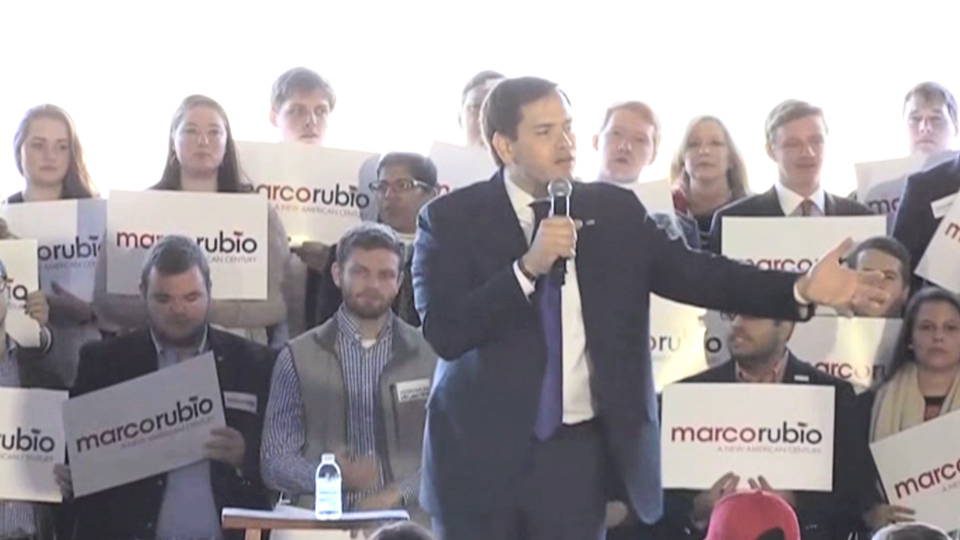
On the campaign trail, Florida Senator Marco Rubio criticized Trump’s remarks refusing to disavow backing from former KKK member David Duke.
Sen. Marco Rubio: "He’s unelectable now. He refused to criticize the Ku Klux Klan. He’s now been given three interviews. This morning on the Today Show, he blamed it on a bad earpiece, that he couldn’t hear the question. I don’t care how bad the earpiece is, Ku Klux Klan comes through pretty clearly, and he refused to criticize it."
TOPICS:
2016 Election
Republican Party
Georgia: Black Students Ejected from Trump Rally Say They Just Wanted to Watch
At a Donald Trump rally Monday night in Georgia, a group of about 30 black students say they were ejected by a Secret Service agent who said Trump asked for them to be removed. The students had been standing silently at the top of the bleachers. In tears outside, they said they just wanted to watch the rally.
Student: "I think we got kicked out because we’re a group of black people. And like I guess people—what’s going on in America, they’re afraid we’re going to say something or do something. But we just really wanted to watch the rally. And to get kicked out because we’re a group of black people, it shows you how racist our own school is, that we can’t even go to our own school complex."
The event took place at Valdosta State University, which was a white-only campus until 1963.
TOPICS:
2016 Election
Republican Party
Trump to Protester: "Are You from Mexico?"
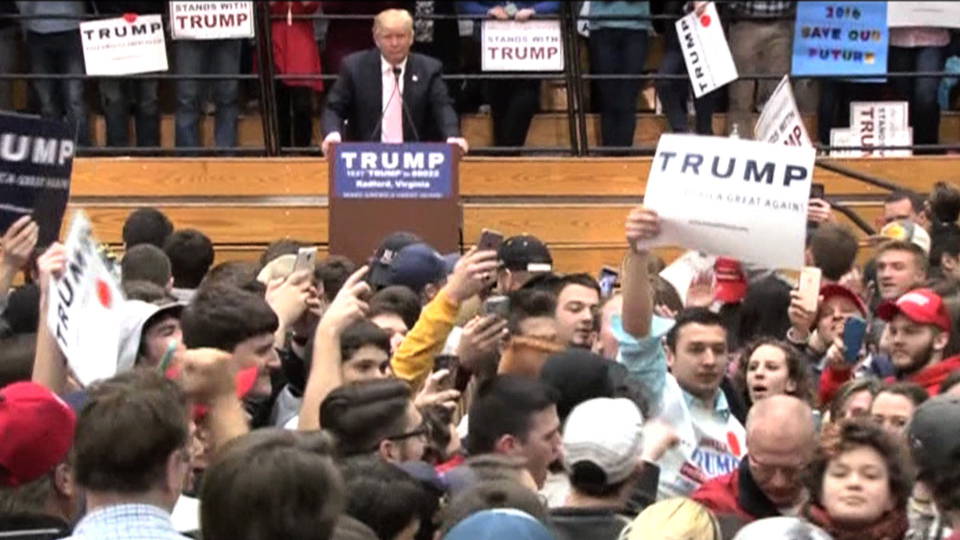
Earlier in the day, at a campaign rally in Virginia, Trump was repeatedly disrupted by protesters, including some from the Black Lives Matter movement. Trump mocked the demonstrators, asking one of them, "Are you from Mexico?"
Donald Trump: "Get him out of here please. Get him out. Get him out. Are you from Mexico? Are you from Mexico? Huh? Are you from Mexico?"
A Time magazine photographer at the Trump rally said a Secret Service agent grabbed him by the neck and shoved him to the ground in an incident that was caught on video.
TOPICS:
2016 Election
Republican Party
Sanders, Clinton Campaign Ahead of Super Tuesday Contests
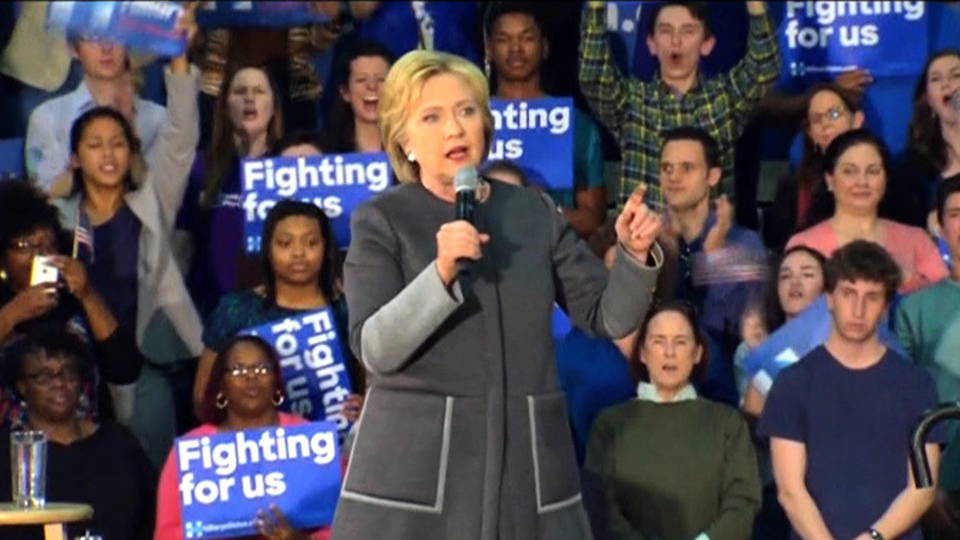
On the Democratic side, following her commanding win in South Carolina, Hillary Clinton now leads Bernie Sanders in six of the 11 states voting today—Alabama, Arkansas, Georgia, Tennessee, Texas and Virginia. On the campaign trail in Norfolk, Virginia, Clinton called for making America "whole" again.
Hillary Clinton: "I personally believe America is and always has been great. What we need to do together is make America whole again, where we are working together, we are focused on making progress together, where we talk about issues, not insults."
Super Tuesday comes as the State Department has finished releasing emails from the private server Clinton used while she was secretary of state. Democratic Senator Sanders has an overwhelming lead over Clinton in his home state of Vermont. Speaking in Milton, Massachusetts, on the eve of Super Tuesday, Sanders drew attention to mass incarceration.
Sen. Bernie Sanders: "There is no rational reason why a black male baby born today has a one-in-four chance of ending up in jail. That’s a disgrace. And together, we are going to bring justice to a broken criminal justice system."
TOPICS:
Bernie Sanders
Hillary Clinton
2016 Election
Democratic Party
Pentagon: U.S. Waging Cyber and Commando Attacks Against ISIL

In the latest expansion of the U.S.-led military campaign in Iraq and Syria, the Pentagon has disclosed the United States is waging new forms of cyber-attacks against ISIL, as well as secret commando missions on the ground. Speaking at a Pentagon news conference, Defense Secretary Ashton Carter said U.S.-led forces would increase their support for Iraqi troops attempting to retake the city of Mosul.
Defense Secretary Ashton Carter: "Because of our strategy and our determination to accelerate our campaign, momentum is now on our side and not on ISIL’s. Our partners on the ground in Iraq have retaken Ramadi and are making gains in Anbar, while at the same time we’re making operationally significant strides in our campaign to dismantle ISIL in Syria."
TOPICS:
Iraq
Syria
Islamic State
Saudi Official: U.S.-Led Coalition Discussed Ground Incursion in Syria
A Saudi official has told Reuters news agency that defense ministers from the U.S.-led coalition fighting ISIL have discussed the possibility of a ground incursion in Syria. Such a move would mark a major escalation in the U.S.-led campaign, which has so far involved airstrikes and arming Syrian rebels. State Department spokesperson John Kirby said the United States would welcome the possibility of a Saudi ground force in Syria, but "there’s a lot of homework that needs to be done."
TOPICS:
Saudi Arabia
Syria
Refugees Tear-Gassed After Rushing Fence on Greek-Macedonian Border
Meanwhile, refugees fleeing Iraq, Syria and other countries are facing restrictions at borders as they attempt to reach countries in Europe. On the Greek-Macedonian border, refugees stormed a border fence, pulling away barbed wire as Macedonian police fired tear gas into the crowd. Thousands of refugees, many of them from Iraq and Syria, have been stranded in northern Greece as countries further along their migration route have heavily restricted passage. Abdullah, from the Syrian city of Aleppo, is among those stranded.
Abdullah: "It’s suffering here. I am suffering here. I am dying, slowly dying here. I don’t know what I’ll do."
TOPICS:
Refugees
Greece
France: Refugees Stage Sit-in to Protest Eviction from Calais Camp

Residents of France’s largest refugee camp have staged a sit-in, refusing to leave after riot police and work crews closed in to demolish their makeshift shelters and evict up to 3,000 people. Riot police fired tear gas on protesting refugees Monday and overnight, and a number of tents were set ablaze. The camp is called the "Jungle" in Calais. French authorities want the refugees moved to shipping containers at the site—where aid groups say there is not enough space—or dispersed to centers across France.
TOPICS:
France
Refugees
Indiana: Judge Blocks Governor's Order Against Resettling Refugees
In Indiana, a federal judge has blocked Republican Governor Mike Pence’s order blocking state agencies from helping Syrian refugees to resettle in the state. Aid groups in Indiana have continued their efforts to resettle refugees, despite Indiana’s attempt to withhold funding earmarked for the purpose. More than two dozen states have taken action to block refugee resettlement programs. U.S. District Judge Tanya Walton Pratt ruled Monday Indiana’s order "clearly discriminates" against refugees.
TOPICS:
Indiana
Refugees
Argentina Agrees to Pay "Vulture Funds" That Sought to Profit Off Debt

Argentina has reached an agreement to pay U.S. hedge funds that have sought for 14 years to profit off the country’s debt. The hedge funds bought up Argentina’s debt for bargain prices after its financial crisis, then demanded full repayment. Former Argentine President Cristina Fernández de Kirchner had refused to pay the firms, calling them "vulture funds." But under the new right-wing president, Mauricio Macri, Argentina has agreed to pay $4.65 billion to four hedge funds, including Elliott Management, run by billionaire Paul Singer. The deal would see the hedge funds take about 75 percent of what they demanded from Argentina—several times more than what they actually paid for the debt.
TOPICS:
Argentina
Judge Rejects FBI Bid to Order Apple to Unlock Drug Dealer's iPhone
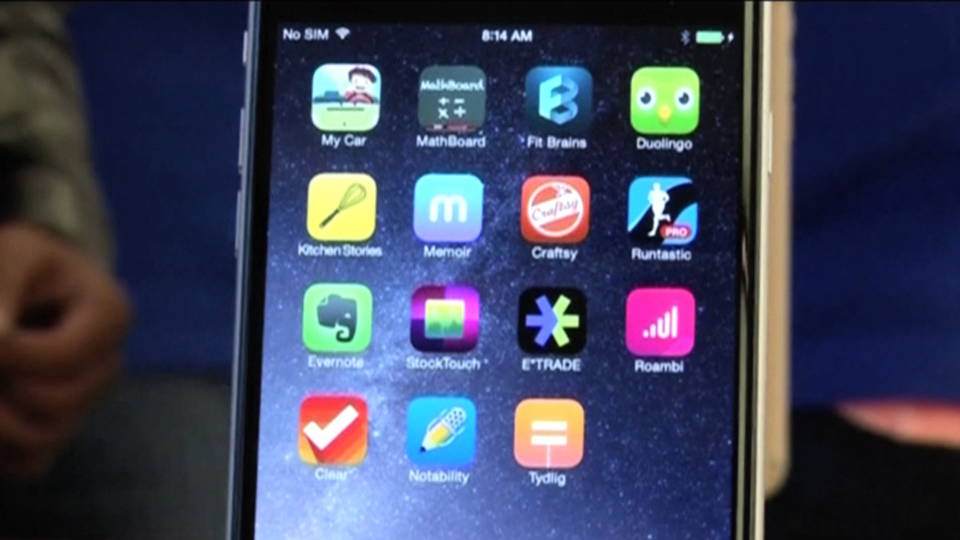
In a victory for privacy advocates, a federal judge has rejected an FBI request to force Apple to unlock a drug dealer’s iPhone. Monday’s ruling came hours before Apple and the Obama administration face off in a congressional hearing today over Apple’s refusal to help the FBI break into the iPhone of one of the San Bernardino massacre suspects in a separate case.
TOPICS:
FBI
Privacy
Supreme Court Justice Clarence Thomas Breaks 10-Year Silence Ahead of Key Abortion Case
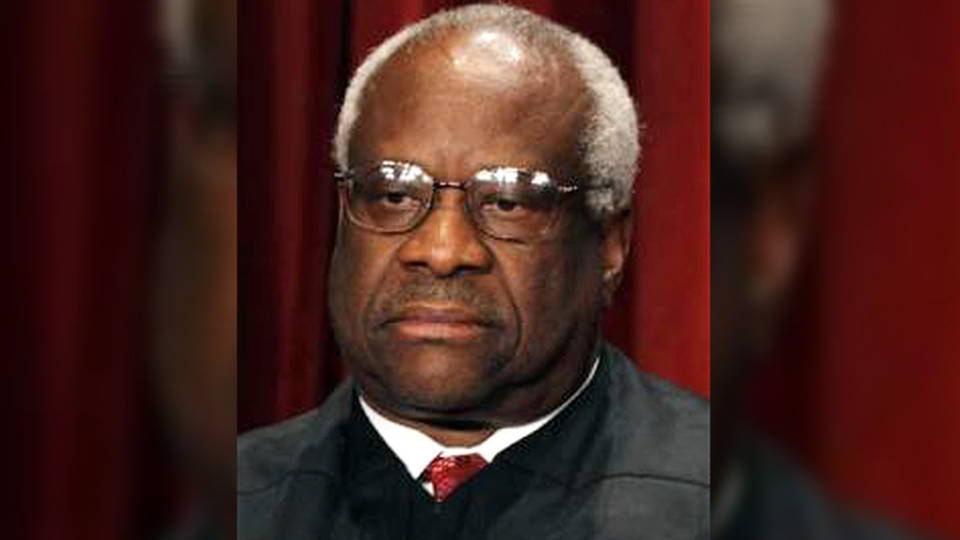
Justice Clarence Thomas has broken a decade-long silence during arguments at the Supreme Court. Thomas asked a series of questions in apparent defense of gun rights during a case on domestic violence and gun control. The remarks Monday came exactly 10 years and one week after Thomas’ last question and just over two weeks after the death of Justice Antonin Scalia, who was known for dominating the Supreme Court arguments. This comes as the court is set to hear arguments Wednesday on the most important abortion rights case in more than 20 years.
TOPICS:
Supreme Court
Alabama Blocks Birmingham from Raising Minimum Wage to $10.10
Alabama has banned cities and towns from raising their minimum wage. The legislation, signed by Governor Robert Bentley late last week, blocks an ordinance passed by the city of Birmingham to raise the city’s minimum wage to $10.10 an hour. Alabama abides by the federal minimum wage of $7.25 an hour—just over $15,000 a year for a full-time worker.
TOPICS:
Alabama
Utah: Hundreds Protest Police Shooting of 17-Year-Old Somali Refugee
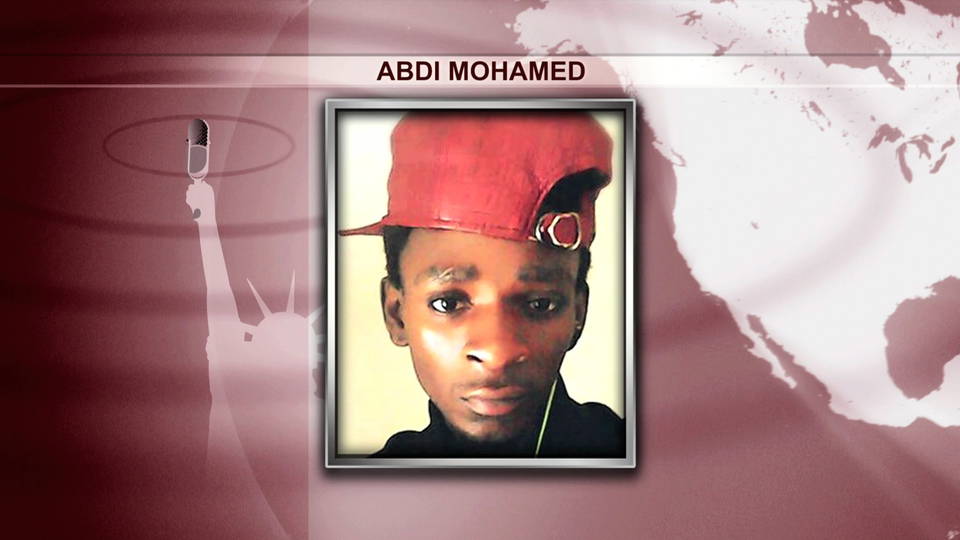
In Salt Lake City, Utah, hundreds took to the streets demanding answers after police shot and critically injured a 17-year-old Somali refugee. The teen, Abdi Mohamed, was shot twice in the torso. Police say he and another person attacked someone with metal sticks and refused calls to drop them; the victim of the alleged beating did not require medical care. Police have so far refused to release footage from the officers’ body cameras.
TOPICS:
Utah
Police
Police Brutality
North Carolina: Witnesses Say Officer Shot Man Who Was Fleeing
Meanwhile in Raleigh, North Carolina, a police officer shot and killed an African-American man while he was trying to flee arrest. A witness told local news the officer opened fire after he fell trying to follow the suspect as he fled over a fence. The man has been identified as Akiel Denkins, a father of two. Police say a gun was found, but have not said if it was Denkins’ gun or if he threatened the officer.
TOPICS:
North Carolina
Police
Police Brutality
Virginia: Army Sergeant Kills Wife, Police Officer
And in Virginia, an Army staff sergeant has been arraigned for killing his wife and a police officer who responded to the scene. Ronald Hamilton admitted killing his wife, Crystal, and then opening fire on police, killing 28-year-old Prince William County officer Ashley Guindon. It was Guindon’s first day on the job.
Donate today:
Follow:

Calls Grow for Wendy's to Join Fair Food Program as Coalition Plans Major Protest of Fast-Food Giant
COLUMN

Broadcast Engineer
Director of Finance and Operations
Director of Development
---------------------
Democracy Now! Daily Digest: A Daily Independent Global News Hour with Amy Goodman & Juan González for Monday, February 29, 2016
democracynow.org
Stories:

"Making America Great for White Males": Activist Responds as Trump Refuses to Disavow KKK Support
Over the weekend, Republican presidential front-runner Donald Trump refused to condemn endorsements from David Duke, a prominent white supremacist and former KKK leader. Duke has told his radio audience that voting against Trump would be "treason to your heritage." Speaking on CNN’s "State of the Union" with Jake Tapper, Trump refused four times to disavow Duke’s support or the support of other white supremacists. "A lot of the people that come to hear him, this whole idea of 'make America great,' that’s all about making America great for a small group of people, generally white males," says Kevin Alexander Gray, a civil rights activist and community organizer in Columbia, South Carolina. He edited the book "Killing Trayvons: An Anthology of American Violence" and is the author of "Waiting for Lightning to Strike: The Fundamentals of Black Politics."
TRANSCRIPT
This is a rush transcript. Copy may not be in its final form.
AMY GOODMAN: I want to turn to the Republican presidential front-runner, Donald Trump, who refused to condemn endorsements from David Duke, the prominent white supremacist and former KKK leader. Duke has told his radio audience that voting against Trump would be, quote, "treason to your heritage." Speaking on CNN’s State of the Union with Jake Tapper, Trump refused to disavow Duke’s support or the support of other white supremacists four times. This is a clip.
DONALD TRUMP: Well, just so you understand, I don’t know anything about David Duke. OK? I don’t know anything about what you’re even talking about with white supremacy or white supremacists. So, I don’t know. I mean, I don’t know—did he endorse me, or what’s going on, because, you know, I know nothing about David Duke. I know nothing about white supremacists. And so, when you’re asking me a question, that I’m supposed to be talking about people that I know nothing about.
JAKE TAPPER: But I guess the question from the Anti-Defamation League is—even if you don’t know about their endorsement, there are these groups and individuals endorsing you. Would you just say, unequivocally, you condemn them, and you don’t want their support?
DONALD TRUMP: Well, I have to look at the group. I mean, I don’t know what group you’re talking about. You wouldn’t want me to condemn a group that I know nothing about. I’d have to look. If you would send me a list of the groups, I will do research on them, and certainly I would disavow if I thought there was something wrong.
JAKE TAPPER: The Ku Klux Klan?
DONALD TRUMP: But you may have groups in there that are totally fine, and it would be very unfair. So give me a list of the groups, and I’ll let you know.
JAKE TAPPER: OK, I mean, I’m just talking about David Duke and the Ku Klux Klan here, but...
DONALD TRUMP: I don’t know any—honestly, I don’t know David Duke. I don’t believe I’ve ever met him.
AMY GOODMAN: Donald Trump has also declined to distance himself from a Benito Mussolini quote that he retweeted. On Sunday, Chuck Todd of NBC’s Meet the Press questioned Trump about the tweet.
CHUCK TODD: Right now on Twitter, there is a trending retweet of yours. You retweeted somebody from @ilduce2016. It was a Mussolini quote, but you didn’t know it was Mussolini when you retweeted it. It said, "It is better to live one day as a lion than 100 years as a sheep." That’s a famous Mussolini quote. You retweeted it. Do you like the quote? Did you know it was Mussolini?
DONALD TRUMP: Sure. It’s OK to know it’s Mussolini. Look, Mussolini was Mussolini. It’s OK to—it’s a very good quote. It’s a very interesting quote. And I know it—I saw it. I saw what—and I know who said it. But what difference does it make whether it’s Mussolini or somebody else? It’s certainly a very interesting quote.
CHUCK TODD: Well—
DONALD TRUMP: That’s probably why I have—
CHUCK TODD: Mussolini is a known fascist.
DONALD TRUMP: —between Facebook and Twitter, 14 million people, and other people don’t.
CHUCK TODD: Do you want to be associated—do you want to be associated—
DONALD TRUMP: It’s a very interesting quote, and people can talk about it.
CHUCK TODD: Do you want to be associated with a fascist?
DONALD TRUMP: No, I want to be associated with interesting quotes.
AMY GOODMAN: There’s Donald Trump being questioned on NBC. Kevin Alexander Gray, can you talk about Donald Trump? Talk about his—I mean, it was only after tremendous outcry on Sunday, after being on CNN and people speaking out all over the country, and Marco Rubio and others attacking him around not disavowing the Klan, that he tweeted out that, OK, he disassociated himself.
KEVIN ALEXANDER GRAY: You know, Donald Trump is a narcissistic white supremacist. And the people that come—a lot of the people that come to hear him, this whole idea of "make America great," that’s all about making America great for a small group of people, generally white males. I mean, that’s what white male supremacy is about, in their mind. And they believe that they are superior, that America needs to dominate everybody. And, you know, it’s all about chest thumping.
So, you know, I have not—I’m not going to vote for Donald Trump. I think that the people that follow Donald Trump obviously don’t understand how he’s made his money, the idea that someone who was married to an immigrant can stand up and bash immigrants, someone who has made so much money on the backs of the workers can bash workers and disregard workers’ rights, that people support that. Part of the reason that people support Donald Trump is the reason that they supported slavery: They thought that one day they might own slaves. A lot of people think that one day they might be rich. That’s why they play the lottery. And, you know, they think that being rich means that you can say and do and get away with anything that you want to get away with.
And the networks love it, because they’re making a lot of money. It’s great entertainment. The Republican debates—I watched the Republican debates, because you never know what they’re going to say. And all these campaigns, be it the Democratic campaign or Republican campaign, the people that are really making out like bandits are the networks, because they’re getting all this advertising money. So, you know, the media created Donald Trump.
You know, when he was out here questioning Barack Obama’s—where he was born, and people called him out as a racist, his record is very clear. And if the Republicans nominate Donald Trump, well, they get what they get. It will be truth in advertising about their party for him to stand on the podium with—what is it—with Jefferson Beauregard Sessions, you know, an old Southerner, who believes in this old South supremacy and the myth of the—the myth of the lost cause and that whole history of the Confederacy. That’s what they’re about.
AMY GOODMAN: You’re talking about the first sitting senator to endorse Donald Trump—
KEVIN ALEXANDER GRAY: Absolutely.
AMY GOODMAN: —Alabama’s sitting senator, Jeff Sessions.
KEVIN ALEXANDER GRAY: So, you know, he’s—as you call him, Trump and those folk play those dog-whistle politics, and I think that’s exactly what Donald Trump is doing, going into Super Tuesday.
AMY GOODMAN: Well, Kevin Alexander Gray, I want to thank you for being with us, civil rights activist, community organizer, speaking to us from the capital of South Carolina, from Columbia. He edited the book Killing Trayvons: An Anthology of American Violence and is author of Waiting for Lightning to Strike: The Fundamentals of Black Politics.
When we come back, Ari Berman joins us, talking about voter rights, talking about who can vote and who can’t, as we come into the biggest voting day in this country, outside of the actual election. It’s Super Tuesday. Stay with us. ... Read More →

"White People's Choice Awards": Oscars Host Chris Rock Condemns Hollywood's Lack of Diversity
Comedian Chris Rock opened Sunday night’s Oscars ceremony in Los Angeles by welcoming the audience to the "White People’s Choice Awards" as the sharp-tongued host brought attention to the lack of diversity and color at the Academy Awards. The Academy of Motion Picture Arts and Sciences, organizer of the Oscar awards, pledged to double its membership of women and minorities by 2020 through an ambitious affirmative action plan that includes stripping some older members of voting privileges. The announcement came amid a backlash over the absence of actors or filmmakers of color in this year’s Oscars nominations. Several actors and filmmakers boycotted the Oscars after no actors of color were nominated for a second year in a row. While the Oscars were being handed out, the Reverend Al Sharpton held a rally outside, and a star-studded cast of African-American actors, musicians and filmmakers held a free event in Flint, Michigan. Flint has been in the national spotlight over lead poisoning in its water, which stemmed from an unelected emergency manager’s decision to switch the city’s water to the corrosive Flint River. We play highlights from the Oscars ceremony and speak with Rashad Robinson, executive director of Color of Change, which supported the Justice for Flint event. He notes the lack of diversity is not limited to nominations, it is also "inside of boardrooms, inside casting agencies."
TRANSCRIPT
This is a rush transcript. Copy may not be in its final form.
AMY GOODMAN: Lady Gaga performing "Til It Happens to You" at last night’s Oscars, a song from the documentary The Hunting Ground, about sexual assault on college campuses. She was joined on stage by dozens of survivors, who had phrases like "not alone" and "not your fault" written on their arms. Lady Gaga herself is a sexual assault survivor. This is Democracy Now!, democracynow.org, The War and Peace Report. I’m Amy Goodman.
CHRIS ROCK: Hey, well, I’m here at the Academy Awards, otherwise known as the White People’s Choice Awards.
AMY GOODMAN: That’s how comedian Chris Rock opened Sunday night’s Oscars ceremony in Los Angeles. He walked onstage to Public Enemy’s "Fight the Power." Hollywood’s biggest night had to share the spotlight with protests, boycotts and the sharp-tongued host, which all brought attention to the lack of diversity at the Academy Awards. Rock didn’t hold back the jabs during his opening monologue. These are highlights.
CHRIS ROCK: If they nominated hosts, I wouldn’t even get this job. That’s right. You’d all be watching Neil Patrick Harris right now. ... I’m sure—I’m sure there were no black nominees some of those years—say, '62 or ’63—and black people did not protest. Why? Because we had real things to protest at the time. You know? We had real things to protest. You know, we're too busy being raped and lynched to care about who won best cinematographer. You know, when your grandmother’s swinging from a tree, it’s really hard to care about best documentary foreign short. ... You know, this year, the Oscars, things are going to be a little different. This year, things are going to be a little different at the Oscars. This year, in the in-memorium package, it’s just going to be black people that were shot by the cops on their way to the movies.
AMY GOODMAN: Chris Rock in his opening monologue for the Academy Awards Sunday night. The Academy of Motion Picture Arts and Sciences, organizer of the Oscar awards, pledged to double its membership of women and minorities by 2020 through an ambitious affirmative action plan that includes stripping some older members of voting privileges. The announcement came amidst a backlash over the absence of actors or filmmakers of color in this year’s Oscar nominations. Several actors and filmmakers boycotted the Oscars after no actors of color were nominated for a second year in a row. While movies about African Americans like Straight Outta Compton and Creed received nominations, they went to the white writers of Straight Outta Compton and white actor Sylvester Stallone for Creed. He didn’t win that last night. But the African-American directors and nonwhite actors were excluded.
While the Oscars were being handed out, the Reverend Al Sharpton held a rally that attracted a crowd of about 50 protesters in the shadow of Dolby Theatre, where the Oscars were held. The protest in Hollywood was one of several taking part across the country. A star-studded cast of African-American actors, musicians and filmmakers held a free event in Flint, Michigan, which has been in the national spotlight over poisoning of their water supply, which stemmed from an unelected emergency manager’s decision to switch Flint’s water to the corrosive, polluted Flint River. Creed director and co-writer Ryan Coogler and Selma director Ava DuVernay attended the #JusticeForFlint event on Oscar night. Other attendees included Grey’s Anatomy star Jesse Williams, musician Janelle Monáe and comedian Hannibal Buress.
Well, for more, we’re joined here in New York by Rashad Robinson. He is executive director of Color of Change, which supported the Justice for Flint event, as well. And in Los Angeles, Hector Becerra joins us, news and feature reporter and assignment editor at the Los Angeles Times. His most recent article, "In This Town, It’s as if Hollywood Tries Not to Cast Latinos."
We welcome you both to Democracy Now! Rashad Robinson, you were tweeting through last night’s Oscars. The significance of what took place? There was the boycott, and there’s those who didn’t boycott, like Chris Rock, who was the host, the M.C., but he addressed that directly, and, well, you heard what he had to say.
RASHAD ROBINSON: Yeah, I mean, I think there was pieces that were funny. There were definitely cringe-worthy moments. That’s what comedians do. But more than just the problems with not enough actors or actresses being nominated, or directors, this is a bigger problem throughout Hollywood. It goes from the casting agencies to the studios, to the Hollywood press. All across Hollywood, we have this problem of lack of diversity, that continues to replicate itself in the decisions that are made inside of boardrooms, inside of casting agencies, around who gets hired and who doesn’t, what stories get told and whose stories don’t get told, whose stories get prioritized and not. And it creates a culture that we all have to then deal with, where some people’s stories are prioritized and not prioritized. And so, I’m glad the Oscar addressed that, but it’s a much bigger problem than one actor being nominated or not. It’s systemic.
AMY GOODMAN: I want to turn back to Chris Rock’s opening monologue during the Oscars ceremony.
CHRIS ROCK: Is Hollywood racist? Is Hollywood racist? You know, that’s a—you know, you’ve got to go at that at the right way. Is it burning-cross racist? No. Is it fetch-me-some-lemonade racist? No. No, no, no. It’s a different type of racist. Now, I remember one night I was at a fundraiser for President Obama. A lot of you were there. ... As they’re setting up the picture, you get like a little moment with the president. I’m like, "Mr. President, you see all these writers and producers and actors? They don’t hire black people. And they’re the nicest white people on Earth. They’re liberals. Cheese!" That’s right. Is Hollywood racist? You’re damn right, Hollywood’s racist. But it ain’t that racist you—that you’ve grown accustomed to. Hollywood is sorority racist. It’s like, "We like you, Rhonda, but you’re not a Kappa."
AMY GOODMAN: Chris Rock hosting the Oscars. Rashad Robinson?
RASHAD ROBINSON: Yeah, I think that that was actually a very funny moment. Also it’s an example of how racism is situated in our current context. Yes, we have the racism of police brutality or redlining in housing. But we have the—this subtle racism, the structural racism that prevents certain people from having opportunities in the workplace, prevents people from having access to, you know, the voting booth, the shape shifting of racism over time. And I think Hollywood reflects that. And the fact of the matter is, is that folks that can be liberal, that can vote for Obama, that can bundle and give a lot of money to Obama or give money to the right things, can still make these decisions every day that are completely inaccurate in terms of the world we want to see.
AMY GOODMAN: And this is a clip of Chris Rock, who did a man-on-the-street segment for the Oscars broadcast. He spoke to moviegoers outside. He said this is a place he had to go as far away as he could from Hollywood, and that was to Compton. And he asked people if they’ve seen any of the Oscar-nominated movies.
CHRIS ROCK: Did you see any of the Oscar-nominated movies? Did you see Spotlight?
COMPTON RESIDENT 1: No. What the hell is that? No, I didn’t see that movie.
COMPTON RESIDENT 2: Spotlight? No.
COMPTON RESIDENT 3: No.
CHRIS ROCK: Do you feel that Trumbo should have been a bigger hit?
COMPTON RESIDENT 4: What?
CHRIS ROCK: How about Brooklyn?
COMPTON RESIDENT 5: No, I haven’t seen Brooklyn.
CHRIS ROCK: Did you see The Big Short?
COMPTON RESIDENT 6: I did not.
CHRIS ROCK: How about The Bridge of Spies?
COMPTON RESIDENT 4: Where are you getting these movies from? You’re making up stuff. You’re messing with me, right?
CHRIS ROCK: No, these are real movies.
COMPTON RESIDENT 4: No, it’s not. I watch movies. I come to the movies all the time.
CHRIS ROCK: These are real movies.
COMPTON RESIDENT 4: Like in London and stuff?
AMY GOODMAN: That’s Chris Rock doing his person-on-the-street interview. Rashad?
RASHAD ROBINSON: I thought it was—I thought that was hilarious, a hilarious bit, and also an example of the different world we live in. I mean, actually, there’s been a couple of really good studies back between 2012 and 2013. The highest box office movies, the top, out of the—the top four out of the 10 were movies that had diverse casts. Black moviegoers actually account for a growing and high number of moviegoers and consistently high moviegoers. So, in fact, Hollywood is actually swimming up their—sort of the own stream of their self-interest financially. And we’ve seen examples currently in television where greater diversity has led to sort of more eyeballs. Greater diversity has led to a change in sort of representation at the Emmys. And the Oscars still lags behind. And they use these old kind of examples, these out-of-date excuses for why they can’t come into the modern age. ... Read More →

Did Bernie Sanders Run a White, "Northern Liberal" Campaign in South Carolina?
As voters went to the polls Saturday for South Carolina’s Democratic primary, presidential candidate Hillary Clinton crushed rival Bernie Sanders, winning the primary with 73.5 percent of the vote and picking up 39 additional delegates, compared to 14 delegates for Sanders. African Americans in the state favored Clinton over Sanders by more than six to one, while white voters narrowly preferred her, as well. Clinton’s decisive win propels her into this week’s critical Super Tuesday voting, where a dozen states go to the polls and about 880 delegates are at stake. Examining the turnout for Clinton, South Carolina civil rights activist and community organizer Kevin Alexander Gray is critical of how Sanders campaigned in the state’s black community. "If you’re going to come down here and you’re going to run a Northern liberal kind of campaign, if you come down here and you talk about revolution and movement but your campaign doesn’t look like the movement you claim to represent, I think people go with the devil you know," Gray says.
TRANSCRIPT
This is a rush transcript. Copy may not be in its final form.
AMY GOODMAN: As voters went to the polls Saturday for South Carolina’s Democratic primary, presidential candidate Hillary Clinton crushed rival Bernie Sanders, winning the primary by a staggering 73.5 percent of the vote and picking up 39 additional delegates, compared to 14 delegates for Sanders. African Americans in the state favored Clinton over Sanders by more than six to one, while white voters narrowly preferred her, as well.
Clinton’s decisive win propels her into this week’s critical Super Tuesday voting, where a dozen states go to polls and about 880 delegates are at stake. It’s the biggest day of the 2016 presidential election. Over the weekend, Clinton campaigned at two different predominantly African-American churches in Memphis, Tennessee.
HILLARY CLINTON: If you will join me on this journey, I know we can do it. And I need your help on Tuesday. The Tennessee primary is really important. So, please, if you will stand up and vote for me, I will stand up and work and fight for you, through this campaign and into the White House together.
AMY GOODMAN: Meanwhile, Bernie Sanders vowed to fight on and drew hundreds of supporters to a campaign rally in Oklahoma City. He told the crowd the current federal minimum wage is a starvation wage, and vowed to increase it to $15 an hour. Sanders also criticized his opponent, Hillary Clinton, and reiterated his call for her to release transcripts of speeches paid for by Wall Street, saying, quote, "If you’re going to get paid $200,000 for a speech, must be a pretty damn good speech. And if it’s such a good speech, you’ve got to release the transcripts, let everyone see it." Sanders also spoke to supporters at a rally in Minnesota.
SEN. BERNIE SANDERS: And you are a super super PAC, and I thank you for that. And I’d rather have you on my side a million times over than all the money in the world from Wall Street. Now, my opponent has a different position. She has a super PAC. And in the last reporting period, her super PAC, her major super PAC, received $25 million, $15 million of which came from Wall Street. She also received, you know, many millions of dollars in speaker fees. Now, she’s a very good speaker, I admit that. But to get $225,000 for a speech to Goldman Sachs, you’ve got to be really good. I don’t know that she’s that good.
AMY GOODMAN: The Democratic race now becomes a broader national contest. The 11 states, along with American Samoa, that will vote during Super Tuesday include six in the South with large nonwhite populations. Of the 880 delegates up for grabs, more than a third of those are needed to win the nomination.
For more, we go directly to Columbia, South Carolina, where we’re joined by civil rights activist and community organizer Kevin Alexander Gray. He edited the book Killing Trayvons: An Anthology of American Violence and is author of Waiting for Lightning to Strike: The Fundamentals of Black Politics.
Kevin Alexander Gray, welcome back to Democracy Now! Can you talk about the primary in South Carolina, its significance, who voted? Well, first, talk Democratic primary politics, and then we’ll talk about Donald Trump and his hesitance to disavow the Klan and David Duke’s support.
KEVIN ALEXANDER GRAY: Well, I’m glad that all the candidates are gone. I think people have reached that burnout stage. But, obviously, on the Democratic Party side, you—even expressed by that clip you showed with Bernie Sanders in Minnesota, Bernie Sanders went to Minnesota before the votes were counted here in South Carolina. And when—and before—the Friday before the election, CBS News led with a piece about the upcoming Saturday primary, where they showed Bernie Sanders in Minnesota surrounded by an all-white crowd and then Hillary Clinton in two locations in South Carolina surrounded by black people, surrounded by Jim Clyburn. And that’s been the story of Bernie Sanders’ campaign even here in South Carolina. It’s been a tour of colleges, a tour of black colleges, a tour of state colleges, but never any penetration into the black community, not even being able to go a block away from those colleges to actually go out into the community.
And when you look at the mailers that Bernie Sanders sent out, one particular mailer that comes to mind is the one that he sent with the young black male with—behind bars, with his hands behind bars, and one with a diploma. Meanwhile, Hillary Clinton is sending out mailers surrounded by black women, in particular. The electorate here in South Carolina, the Democratic electorate, is 60 percent black, and that electorate is 60 percent black women. So, you know, if you’re going to come down here and you’re going to run a Northern liberal kind of campaign, if you come down here and you talk about revolution and movement but your campaign doesn’t look like the movement you claim to represent, I think people go with the devil you know.
The other thing that people are not paying attention to in this huge victory that Hillary Clinton had over Bernie Sanders is the fact that so many people didn’t vote from 2008 to 2016. I would say that a lot of those people that didn’t vote didn’t vote because of their reticence to the Clintons and what happened between them and Obama and understanding that history.
But while Bernie Sanders—I hate to say it—while he’s talked about a movement campaign, he hasn’t run a movement campaign. He’s just run a campaign. And if he’s talking about something long-lasting to build out in the communities, well, he hurt himself here in South Carolina. He left South Carolina like the first defeat of the North in Bull Run. And to not be with his people in defeat, that went out and did the best they could, lets you know what he thinks about black voters, in some people’s minds. I think it’s going to hurt him tremendously in the South, moving forward.
AMY GOODMAN: According to ThinkProgress, "More than 33,000 people in South Carolina are behind bars, and 62 percent of the prison population is black. Most of those people are not eligible to vote. In 2012, the [South Carolina Legislature] took voting rights away from state residents on parole and today, more than 48,000 South Carolina residents in prison, on parole, and on probation are disenfranchised by felony or misdemeanor convictions. African Americans [make] up 64 percent of South Carolina’s disfranchised population, even though they comprise only 27 percent of the state’s voting age population. One out of"—
KEVIN ALEXANDER GRAY: Let me say something, Amy. Let—
AMY GOODMAN: —"every 27 African American voters is disfranchised in South Carolina, compared to one out of 65 South Carolina voters." Your thoughts on this, Kevin?
KEVIN ALEXANDER GRAY: Let me say this, Amy. Let me say this, Amy. First of all, that’s a problem in and of itself, that the discussion on black politics starts talking about criminal justice issues and prisons. Black voters want the same thing that white voters want. They want to be able to pay their house payments, to pay their mortgages, to pay their rent, to pay their utility bills, to pay their taxes, to educate their kids. And when you think that the whole foundation of black politics is just about talking about criminal justice and crime, well, that’s playing a stereotype in and of itself. And while there are a lot of black people in jail in South Carolina disproportionately and we understand the effects of structural racism, we still have a million, close to a million, eligible black voters in South Carolina and probably close to 600,000 to 700,000 registered voters. And when you look at the results from 2008 to 2012 and the number of people that didn’t vote, that are registered to vote, that says something about the Democratic Party. That says something about someone telling them that they are waging a revolution, and it’s not a revolution.
If you want to talk about building and building a progressive movement, build a progressive movement, but do not come into South Carolina or anywhere, where basically you’ve got the same kind of campaign that Hillary Clinton got. You’ve got white men on the top running it, and you come into the state, and all your surrogates are men. You have a program in Greenville, South Carolina, with Danny Glover, and everybody on the program is a man. And those kinds of things matter. But to start out just talking about crime, just talking about police and using Black Lives Matter talking points, well, the black community, I believe, is more sophisticated than that. And if you’re running a progressive campaign, you ought to have sense enough to know that you have to talk to people and tease out the issues a whole lot better than you did.
Hillary Clinton is a neoliberal Democrat. The purpose of the Jackson campaigns in '84 and ’88 were a counter to Bill Clinton and Hillary Clinton and the rise of the DLC, the Democratic Leadership Council, which Jesse called the Democratic Leisure Class. And Bernie Sanders is supposedly running a campaign in that tradition, bringing people together, bringing coalitions of people together. I'm not seeing that. I’m not seeing the nuclear activists and the peace activists and the Arab-American community and the labor community and the black community have a real say in defining a platform that makes some sense.
Now, Bernie has done—Bernie Sanders has done some wonderful things in his campaign. He’s brought young people into the process. I hope he keeps them energized. But if the only mission is to say that you’ve pushed the Democratic Party to the left at the end of this process, then what have you accomplished? If we’re talking about building something long-lasting and really changing the nature of politics, which means that you have to change it on the local and the state level, you have to tackle these state legislatures, you have to be prepared to tackle reapportionment and gerrymandering, so that you can vote better people into office to move on to Congress, so you can actually change things. But if you’re not going to do that, you’re not—you have to have agents of change. You can’t simply be an agent of change by yourself.
AMY GOODMAN: Who are you going to be supporting?
KEVIN ALEXANDER GRAY: I don’t know yet. I might—you know, I support third-party candidates. I could possibly support a third-party candidate from the Green Party in the general election. I haven’t supported the Democratic Party in a national ticket since 1992. I was in the room with Jesse Jackson and the Rainbow Coalition when Bill Clinton pulled a Sister Souljah. I was here in South Carolina as Tom Harkin, Southern political director, marching in a public housing project with Jesse and Harkin, when Clinton called him a backstabber. I worked with Harkin and wrote those ads with Adolph Reed, who now supports Bernie Sanders, to call Bill Clinton out on the execution of Ricky Ray Rector, a brain-damaged young black man in Arkansas.
So, you know, I’m not supportive of neoliberal politics. If Bernie Sanders would tell people, explain the difference between what a progressive is and what a neoliberal is, which is what Hillary Clinton is, someone that supports war, that supports Wall Street, that supports privatization, a lot of things her husband did, like NAFTA and CAFTA—these are things that have almost decimated the middle class and increased the wealth gap. So, those are things that neoliberals support. Some of the things they support are the same things that neoconservatives support. It’s just about who’s running it.
But Sanders also has to be against the idea of empire, if he’s going to raise up Martin Luther King’s name and talk about marching with Martin Luther King. Martin Luther King said a threat to justice anywhere is a threat to justice everywhere. And that goes for Palestine and Israel. And neither of the candidates, to include the progressive candidate, has dared step on that rail in this campaign. How am I to think that a so-called progressive candidate is really right on race and ethnicity and the value of all humans and respect for human rights, if he can’t stand up for Palestine? That’s important to me. But, you know, I don’t want a so-called progressive campaign—for me, the foundation of that campaign has to be right. How it’s constructed has to be right, if you claim to be a progressive.
AMY GOODMAN: So—
KEVIN ALEXANDER GRAY: It can’t just be about people at the top vying for power within the Democratic Party.
... Read More →

16 States Face New Voting Restrictions in First Election in 50 Years Without Full Voting Rights Act
As 12 states head to the polls on Super Tuesday, we look at how voting rights could become a pivotal issue in the 2016 race. On August 6, 1965, President Lyndon Johnson signed into law the Voting Rights Act, which has been under attack ever since. In 2013, the Supreme Court struck down crucial components of the act in a case called Shelby County v. Holder, when it ruled that states with histories of voting-related racial discrimination no longer had to "pre-clear" changes to their voting laws with the federal government. Immediately following the Shelby ruling, several states passed laws that made it harder for people to vote. The 2016 race is the first presidential election in 50 years without the full protection of the Voting Rights Act. "Sixteen states have new voting restrictions in place," notes Ari Berman, who covers voting rights for The Nation. His recent piece is "63,756 Reasons Racism is Still Alive in South Carolina." His book is titled "Give Us the Ballot: The Modern Struggle for Voting Rights in America."
TRANSCRIPT
This is a rush transcript. Copy may not be in its final form.
AMY GOODMAN: As we move into Super Tuesday, with 11 states and American Samoa voting, we look at voting rights, which could become the pivotal issue in the 2016 race. On August 6, 1965, President Lyndon Johnson signed into law the Voting Rights Act, which has been under attack ever since. In 2013, the Supreme Court struck down crucial components of the act in a case called Shelby County, Alabama v. Holder, when it ruled states with histories of voting-related racial discrimination no longer had to pre-clear changes to their voting laws with the federal government. Immediately following the Shelby ruling, several states passed laws that made it harder for people to vote. The 2016 race is the first presidential election in half a century without the full protection of the Voting Rights Act.
To talk more about the potential impact of voting rights in this election, we’re joined by Ari Berman, who covers voting rights for The Nation, his recent piece headlined "63,756 Reasons Racism is Still Alive in South Carolina." His new book, Give Us the Ballot: The Modern Struggle for Voting Rights in America.
Welcome back to Democracy Now!
ARI BERMAN: Good to see you again, Amy.
AMY GOODMAN: So, talk about this 63,000-plus reasons racism is still alive in South Carolina.
ARI BERMAN: Well, South Carolina has a new voter ID law, and that number, 63,000, is the number of minority voters without ID, who could not vote, under the law, unless they have an excuse for why they don’t possess this ID. And the voter ID law in South Carolina was passed in a very racially charged, anti-Obama atmosphere. Members of the South Carolina Legislative Black Caucus walked out when this bill was considered. This was passed overwhelmingly by white Republicans. One of the authors of the law received—
AMY GOODMAN: Was one of the people who walked out Reverend Clementa Pinckney, who was gunned down last June?
ARI BERMAN: Yes, I believe so. And one of the bill’s sponsors received an email from a supporter of the voter ID law that said, if African Americans were paid for voter ID, it would be like, quote, "a swarm of bees going after a watermelon"—very racially charged language. And the author of the voter ID law, a South Carolina Republican, said, "Amen. Thank you for your support of voter ID." So that was the atmosphere in which the voter ID law was passed. About 7 percent of registered voters don’t have a government-issued ID. Minority voters were 20 percent more likely than whites to not have this. And so, this is the climate heading into 2016.
AMY GOODMAN: So that is South Carolina. Talk about Alabama, Georgia, Arkansas, the states that are now going to be voting on Tuesday.
ARI BERMAN: Yeah, well, five of the states that are voting on Super Tuesday have tough new voting restrictions in place. You look at places like Alabama, Texas, Virginia. They have strict voter ID laws in place for the first presidential cycle. Many, many voters could be impacted. You look at Texas, for example, 600,000 registered voters there don’t have a government-issued ID. Blacks and Hispanics are twice as likely—two to three times as likely as whites to not have one. In Texas, you can vote with a gun permit, but not a student ID.
So this is a really big issue. Most of the media is not covering this. It hasn’t come up. The issue of voting rights has not come up in 16 presidential debates. There has been so much focus on who people are going to vote for, but we haven’t been asking another question, which is: Will people be able to vote in the first place? Will every eligible voter be able to cast a ballot?
AMY GOODMAN: So, what do you feel needs to happen at this point to guarantee people the right to vote?
ARI BERMAN: Well, I think there’s a number of things that have to happen. It’s interesting. Last week, the Congress honored the foot soldiers of the Selma movement, people like Congressman John Lewis, who fought and nearly died for voting rights. But that same Congress will not restore the Voting Rights Act. And as you mentioned earlier, we’re heading into the first presidential cycle in 50 years without the full protections of the Voting Rights Act. What that means in practice is that 16 states have new voting restrictions in place for the first presidential cycle in 2016. So, it’s critically urgent to restore the Voting Rights Act and then make it easier to vote in a whole lot of different ways, things like early voting and same-day voter registration and automatic voter registration, to get a lot more people involved in the political process, because right now a quarter of Americans, 50 million people, are not even registered to vote and won’t be participating in any way in the 2016 election.
AMY GOODMAN: Now, since this is the first time a lot of this is going into effect, how do people know what they’re being told at the polls is right? Like when they say, "I didn’t need an ID before," what are they supposed to do? They just walk away?
ARI BERMAN: Well, this is the problem here. In South Carolina, for example, they said you need photo ID to vote. You need one of five forms of photo ID to vote. But you didn’t actually need that, because if you didn’t have the ID, for example, you could sign an affidavit, cast a provisional ballot and still vote. But the problem is, the state was not telling voters this, so there was a lot of confusion, and people were staying home. And you look at the fact that 160,000 fewer Democrats voted in 2016 than in 2008 in the Democratic primary. There could be a whole lot of reasons for that, but there are certainly some people that didn’t show up because of the voter ID law, that thought their votes wouldn’t be counted. Even those people who are voting without ID, they’re now casting provisional ballots. That takes a while to be counted. And just think back to 2000, Amy, in the Florida election—537 votes was the margin of victory for George W. Bush about Al Gore. We’re talking about many, many, many, many more people now impacted by these new laws. So I’m very, very concerned that in a close election, these laws can make a difference.
AMY GOODMAN: So talk about the candidates’ positions on voting rights—for example, Florida Senator Marco Rubio.
ARI BERMAN: Well, the Democrats have been much, much better than the Republicans on this issue. There’s been a huge gap. Rubio is someone, a supposed moderate, establishment candidate in the race. He has supported cutbacks to early voting in Florida. He has supported efforts to purge the voting rolls. He has supported strict voter ID laws. When he was asked by a voter in Iowa about six-hour lines in Miami on Election Day 2012, Rubio responded, "Well, that was only on Election Day," which was a crazy comment, because, yes, the longest lines usually do occur on Election Day, but in Florida, because they cut back on early voting, there were long lines all the way through the process. And President Obama said on election night 2012, "We have to fix that," pointing specifically about—at Florida. So, Rubio clearly has not learned anything from the debacle on voting rights in that state in 2012 and in 2000 and all the things that have happened in the past.
AMY GOODMAN: Texas [Senator] Ted Cruz, his state, of course, in Super Tuesday?
ARI BERMAN: Ted Cruz has been one of the worst Republicans on the issue of voting rights. He supports strict voter ID laws. He supported the gutting of the Voting Rights Act. He wants you to show proof of citizenship to register to vote, so you have to have a birth certificate or a passport when you’re registering to vote, which many, many people don’t have. And I wrote an article for The Nation recently that basically said Ted Cruz is leading the way when it comes to making it harder to vote.
But all of the candidates themselves have supported tough restrictions. You look at Jeff Sessions, who just endorsed Donald Trump, the first senator, as you mentioned, who endorsed Donald Trump. Jeff Sessions was someone who, as a U.S. attorney in Alabama, falsely targeted black activists for voter fraud. He called the NAACP a communist organization. He called a U.S. attorney in Alabama "boy." This is someone with a very long history of not only racially charged remarks, but of supporting things like gutting the Voting Rights Act. And this is now the face of the Republican Party. Ted Cruz, Jeff Sessions, Donald Trump—this is the face of the Republican Party right now.
AMY GOODMAN: So, let’s talk Donald Trump. Speaking at a rally in New Hampshire last month, he said that the voting system is out of control.
DONALD TRUMP: Look, you’ve got to have real security with the voting system. This voting system is out of control. You have people, in my opinion, that are voting many, many times. They don’t want security. They don’t want cards.
AMY GOODMAN: That’s Donald Trump.
ARI BERMAN: Well, there’s no evidence that people are voting many, many times, as Trump said. You look at voter impersonation, which is the kind of thing a voter ID law would stop. There have been only 31 cases of voter impersonation since 2000, out of a billion votes cast. So this has been a red herring. This narrative of voter fraud has been drummed up to build consensus for policies that make it harder for certain people to vote. It’s been a manufactured controversy. The real fraud is the fact that all of these voters are going to the polls and facing new restrictions for the first time, that are unnecessary, that are burdensome and that are discriminatory.
AMY GOODMAN: Prisoners, the rights of people who have been in prison or on parole or on probation, or who are completely done with the criminal justice system in this country?
ARI BERMAN: It’s a huge issue. More than 5 million Americans can’t vote because of felon disenfranchisement laws, including one-in13 African Americans. So when you talk about the criminal justice system, you talk about Black Lives Matter, there’s a huge piece in terms of voting rights that relates to all of these issues. Voter disenfranchisement is another legacy of Jim Crow that we are still wrestling with today.
AMY GOODMAN: I mean, Bernie Sanders will be celebrating Super Tuesday in his home state of Vermont, where prisoners in prison can actually vote.
ARI BERMAN: Well, and Vermont has some of the best laws in the country, if you look at—they have same-day voter registration, for example, that increases voter turnout by up to 10 percent. So, there are states with much better election laws that are voting on Super Tuesday, like Minnesota, like Vermont. Unfortunately, places like Texas, Alabama, they are moving in a very different direction.
AMY GOODMAN: How do people who have a record find out are they able to vote?
ARI BERMAN: Well, the laws are different in different places. And some people have their voting rights restored, and they don’t even know about it. So they have to—there has to be much better outreach to these communities, for example. Maryland just became a state that allows you to vote if you are on parole. So, that’s one of those places where—the word needs to get out now that the law has changed. But most people can’t follow the intricacies of voting rights. They don’t know. They’re not election law experts. They don’t know when the law changes, particularly people that just get out of prison and are wrestling with a whole number of issues. So, I think it would be great if we had standardized laws in this country. If, when people serve their time, they were able to vote everywhere, I think that makes a lot of common sense. Unfortunately, that’s not the system we have right now.
AMY GOODMAN: Ari Berman, I want to thank you for being with us. Ari Berman covers voting rights for The Nation. His latest book, Give Us the Ballot: The Modern Struggle for Voting Rights in America.
When we come back, the Oscars. Stay with us. ... Read More →

Is Hollywood "Ambivalent About Latinos," Limiting Them to Roles of Housekeeper and Gang Member?
"Hollywood seems to be a little bit ambivalent about Latinos, about portraying them, sometimes indifferent," says our guest Hector Becerra, a news and feature reporter and assignment editor at the Los Angeles Times who recently wrote an article headlined, "In This Town, It’s as if Hollywood Tries Not to Cast Latinos." He says, even when they are included, "there’s a lack of nuance," because they are often portrayed as a housekeeper or gang member. We also discuss the significance of Mexican-born filmmaker Alejandro González Iñárritu winning best director for a second year in a row.
TRANSCRIPT
This is a rush transcript. Copy may not be in its final form.
AMY GOODMAN: I wanted to go to Hector Becerra, a news and feature reporter and assignment editor for the Metro Times section of the Los Angeles Times. This was a little out of character for your writing, the piece you did on the Oscars, but you did it, Hector, "In This Town, It’s as if Hollywood Tries Not to Cast Latinos." Talk about what you found.
HECTOR BECERRA: Well, I mean, I think—you know, I’m not an industry reporter. I’m a news reporter. But I think my impressions were basically just as a Mexican American who grew up in L.A., in a city that, I think, Chris Rock in The Hollywood Reporter two years ago referred to as being racist toward Mexicans. And I think one of the things that he said is, it’s hard if you’re a Mexican American or Latino to just get supporting roles, even within studios, even those sort of technical roles. I think it’s—you know, what I wrote about was based on talking to people, but also just based—sort of an eyeball test. When you look at movies in Hollywood, I think Hollywood seems to be a little bit ambivalent about Latinos, about portraying them, sometimes indifferent, and seems to take shortcuts. You know, they will cast certain roles that sort of have like the word "Latino" or "Mexican" in neon lights above: This is a housekeeper, therefore Latino; this is a gang member, therefore Mexican. And I think there’s a lack of nuance in how Hollywood portrays Latinos, and actually sometimes just fails to portray them at all.
AMY GOODMAN: I want to turn to the acceptance speech of the Mexican-born filmmaker Alejandro González Iñárritu, who won best director for a second year in a row. Only three directors in history have won this. Last year it was for Birdman, this year he won for The Revenant, which stars Leonardo DiCaprio, who also won. This is what he said.
ALEJANDRO GONZÁLEZ IÑÁRRITU: I am very lucky to be here tonight, OK? But unfortunately, many others haven’t had the same luck. There is a line in the film that says, Glass to his mixed-race son, "They don’t listen to you, they just see the color of your skin." So what a great opportunity to our generation to really liberate ourselves from old prejudice and, you know, this tribal thinking, and make sure, for once and forever, that the color of skin become as irrelevant as the length of our hair.
AMY GOODMAN: That’s Mexican-born filmmaker Alejandro González Iñárritu. Hector Becerra, the significance of his win last night and the work he does?
HECTOR BECERRA: Well, I think it’s counterpoint, in many ways, to sort of the narrative, the political narrative, of Mexicans in this country or coming into this country. Of course, we had Donald Trump’s controversial statements about Mexican—Mexico importing rapists. And here you have—I think this is the third Mexican director, best picture—best director award to go to a Mexican filmmaker in a row. I don’t—you know, Cuarón, I think, won for Gravity, and then Iñárritu has won two years in a row. So I think it’s sort of an interesting counterpoint. I hope people notice it. I hope that it presents people with a different view of sort of the talent that is just waiting to be tapped in Hollywood.
AMY GOODMAN: And, Hector, what about whitewashing, what you refer to, white actors taking the roles and playing Latino characters?
HECTOR BECERRA: Well, I mean, I think—growing up, some of my favorite movies were, for example, The Good, the Bad and the Ugly, and it never bothered me that Eli Wallach played Tuco. I loved the movie. But there isn’t a lot of reciprocity; it doesn’t necessarily go the other way. I think I mentioned the show Fear the Walking Dead, which I actually enjoyed. There are two characters that really could have very easily have been Latino, played by Latinos, and they weren’t. One was played by an actress that was actually born in Sweden, and she’s supposed to be the daughter of Salvadoran immigrants. And the other is played by some Italian-American actor whose mother is Sicilian, and he’s said it kind of gave him a Spanish-like skin texture. I think Hollywood doesn’t have to exactly pull a groin or a hamstring to have a little more sophisticated portrayal of Latinos, or actually even include them a little bit more, especially in shows that are set in L.A., like Fear the Walking Dead was. In fact, I think much of the action was set in the Eastside, which is where I was born. And I can tell you, the Eastside is like 95 percent Mexican-American.
AMY GOODMAN: Well, Hector Becerra, I want to thank you for being with us. We’re going to link to your article at the L.A. Times. And thank you so much to Rashad Robinson, who is the executive director of Color of Change.
That does it for our broadcast. We have job openings. Go to our website at democracynow.org. ... Read More →
Headlines:Clinton Defeats Sanders in South Carolina Democratic Primary
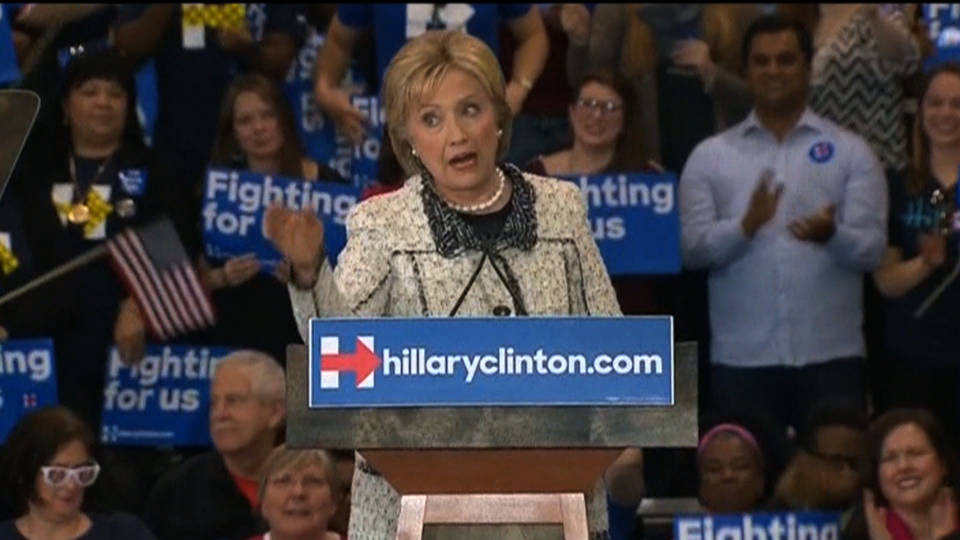
In South Carolina, Democratic presidential candidate Hillary Clinton scored a decisive victory over rival Bernie Sanders in the primary, winning 73.5 percent of the vote and picking up 39 additional delegates. African Americans in South Carolina favored Clinton over Sanders by more than six to one, while white voters narrowly preferred her, as well. In her victory speech, Clinton responded to Republican presidential front-runner Donald Trump’s vow to "make America great again."
Hillary Clinton: "Despite what you hear, we don’t need to make America great again. America has never stopped being great. But we do need to make America whole again. Instead of building walls, we need to be tearing down barriers."
Clinton’s victory propels her into this week’s critical Super Tuesday voting, where a dozen states go to the polls and about 880 delegates are at stake.
TOPICS:
Hillary Clinton
Bernie Sanders
2016 Election
Democratic Party
Sanders' Supporters Rally in NYC, Say They're "Not Here for Boys"
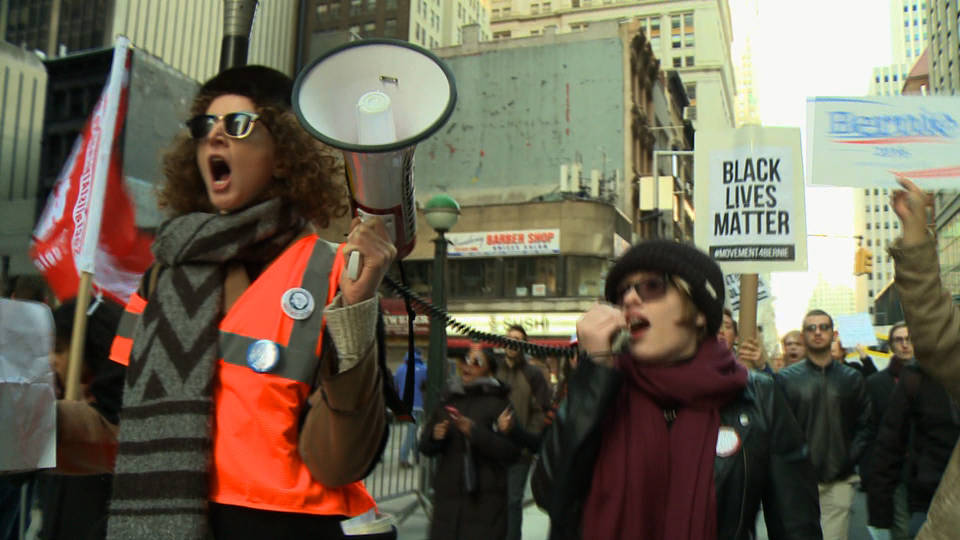
Meanwhile, here in New York, hundreds of supporters of Clinton’s rival, Vermont Senator Bernie Sanders, gathered in Union Square and marched to Zuccotti Park, where Occupy Wall Street began. Participants said they were responding to Clinton supporter Gloria Steinem, who was forced to apologize after suggesting young women support Sanders because "that’s where the boys are."
Elma Relihan: "Today’s march is 'Not Here for Boys,' so it responds to comments made by Gloria Steinem that were very insulting comments, saying that women were just here for boys. In fact, women—Bernie’s campaign and Bernie’s program is addressing a lot of fundamental needs that working-class women have. The single-payer system, the $15-an-hour minimum wage, free tuition are things that really resonate with young people, young women. And that’s why women are out here today to show that we are supporting Bernie, that we are wanting to build a movement that goes beyond the presidential campaign, that builds a fighting movement, an independent force that can fight for women’s rights and also for workers’ rights, for labor rights."
TOPICS:
Hillary Clinton
Bernie Sanders
New York
2016 Election
Democratic Party
DNC Vice Chair Resigns to Back Sanders; Bill Clinton's Labor Secretary Endorses Sanders
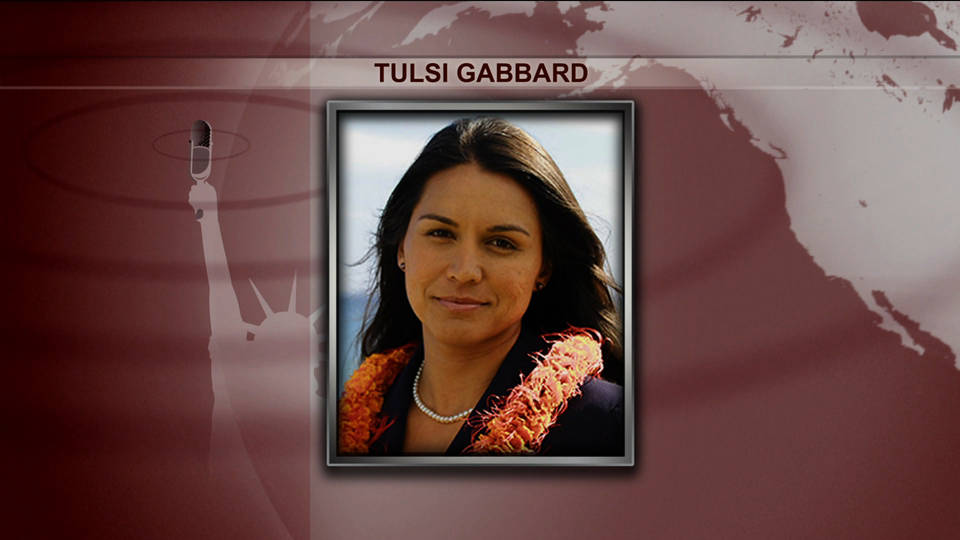
On Sunday, Democratic Representative Tulsi Gabbard of Hawaii resigned as a vice chair of the Democratic National Committee in order to endorse Senator Bernie Sanders for president. Gabbard had clashed with DNC Chair Debbie Wasserman Schultz—who co-chaired Hillary Clinton’s 2008 presidential bid—over the number of debates, which is seen as favoring Clinton over Sanders. Meanwhile, Robert Reich, who was labor secretary under President Bill Clinton, also endorsed Sanders, saying he believes "Bernie Sanders is the agent of change this nation so desperately needs." We’ll have more on the latest primary news after headlines.
TOPICS:
2016 Election
Democratic Party
Bernie Sanders
New Jersey Gov. Chris Christie, Alabama Sen. Jeff Sessions Back Trump
Alabama Senator Jeff Sessions has become the first sitting senator to endorse Republican presidential front-runner Donald Trump. The endorsement came two days after New Jersey Governor Chris Christie backed Trump, despite excoriating him on the campaign trail before Christie himself backed out of the race.
Trump Refuses to Condemn Endorsements from Former KKK Leader
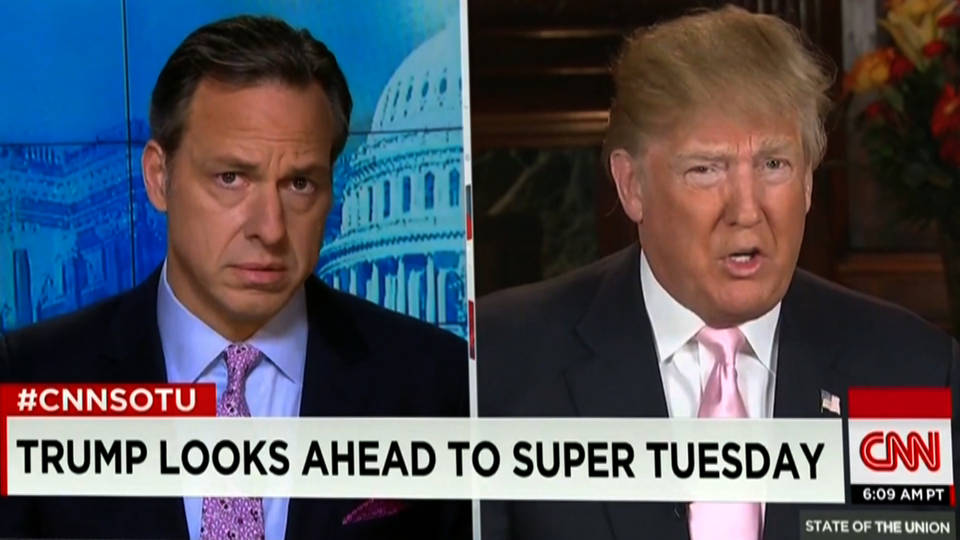
Meanwhile, in an appearance on CNN, Trump refused to condemn endorsements from David Duke, a prominent white supremacist and former KKK leader. In an interview with Jake Tapper, Trump said he didn’t know David Duke.
Donald Trump: "I’d have to look. If you would send me a list of the groups, I will do research on them, and certainly I would disavow if I thought there was something wrong."
Jake Tapper: "The Ku Klux Klan?"
Donald Trump: "But you may have groups in there that are totally fine, and it would be very unfair. So give me a list of the groups, and I’ll let you know."
Jake Tapper: "OK, I mean, I’m just talking about David Duke and the Ku Klux Klan here, but..."
Donald Trump: "I don’t know any—honestly, I don’t know David Duke. I don’t believe I’ve ever met him."
Despite what he said, Trump has actually disavowed David Duke in the past: In 2000, Trump opted not to launch a presidential bid for the Reform Party, saying in part that the party "now includes a Klansman, Mr. Duke. ... This is not company I wish to keep." Later Sunday, Trump posted a video on Twitter of himself disavowing David Duke.
TOPICS:
Republican Party
2016 Election
Racism
Alabama: Veterans Disrupt Trump Event to Protest Anti-Muslim Remarks
Meanwhile, at a rally in Madison County, Alabama, Trump was disrupted by veterans who condemned his vow to ban Muslims from entering the United States. The veterans held signs reading "We stand with our Muslim brothers and sisters" and "Mr. Trump: Veterans say end hate speech." As the veterans were roughly forced out of the venue, Trump exclaimed, "Isn’t this fun?"
Donald Trump: "Tell me, tell me, isn’t it fun to be at a Trump rally? Isn’t this fun?"
TOPICS:
2016 Election
Republican Party
Iraq: Double Suicide Bombing Kills At Least 70 in Baghdad
In news from Iraq, a double suicide bombing claimed by ISIL has killed at least 70 people in a Shiite section of the capital Baghdad, marking the deadliest attack inside the city this year. The attackers blew themselves up inside a crowded cellphone market in the neighborhood of Sadr City. Outside the capital Baghdad, in the suburb of Abu Ghraib, ISIL militants attacked Iraqi security forces, killing at least 17 of them and seizing a grain silo and cemetery, before they were mostly pushed back. Abu Ghraib is known as the site of a prison of the same name where U.S. troops abused Iraqi prisoners following the U.S. invasion of Iraq in 2003.
TOPICS:
Iraq
Islamic State
Syria: Both Sides Accused of Violating Fragile Ceasefire

In Syria, a partial ceasefire brokered by the United States and Russia has entered its third day, amid accusations of violations from both sides. Airstrikes by either Syria or Russian warplanes hit a number of rebel-held villages in what the Syrian opposition called a violation of the truce. Meanwhile, Russian officials accused rebel groups of violations. However, overall, the ceasefire, which is the first to be attempted in years, appears to have calmed the violence.
TOPICS:
Syria
Yemen: U.S.-Backed Coalition Bombs Market, Killing 40

In Yemen, the U.S.-backed, Saudi-led coalition fighting Houthi rebels has struck a bustling market northeast of the capital Sana’a, killing 40 people. About 30 more people were injured. Residents said most of the casualties were civilians. The United Nations says about 6,000 people have been killed since the U.S.-backed coalition began bombing the rebels in March, about half of them civilians.
TOPICS:
Yemen
Saudi Arabia
Japan: Three Executives Indicted for Fukushima Nuclear Disaster

In news from Japan, the former CEO and two other former executives of nuclear giant TEPCO have been indicted for negligence over the disaster at the Fukushima nuclear plant nearly five years ago. In March 2011, a massive earthquake and tsunami triggered a nuclear meltdown, exposing workers and residents to radiation and forcing a mass evacuation. Nearly 15,000 Fukushima residents filed a complaint, but prosecutors twice refused to bring charges against the executives. Then last year, a citizens’ panel ruled the executives should face trial, forcing the first criminal action over the disaster to move forward.
TOPICS:
Japan
Fukushima
London: Tens of Thousands Rally Against British Nuclear Program
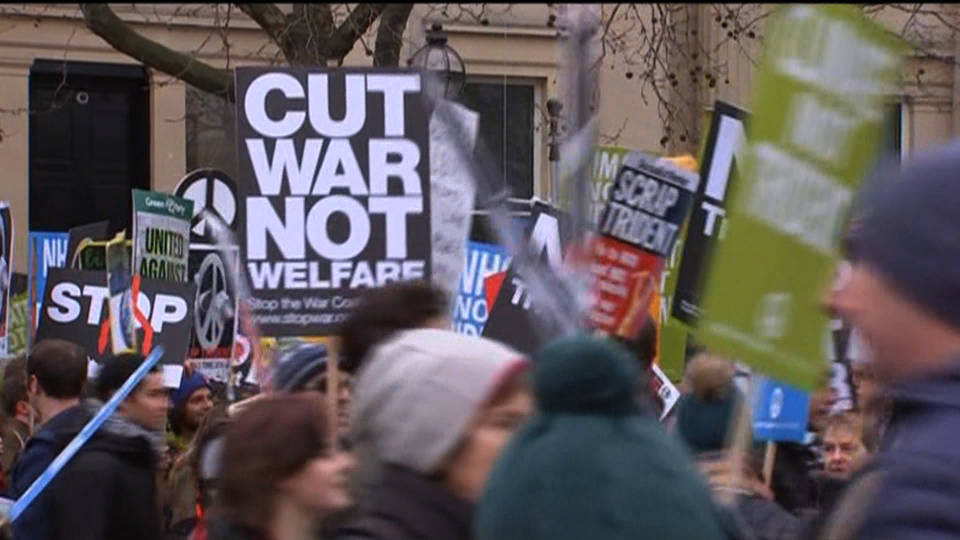
Meanwhile in London, tens of thousands of people rallied against Britain’s nuclear weapons program, marking what The Guardian called "Britain’s biggest anti-nuclear weapons rally in a generation." Protesters traveled from as far away as Australia to join the protest, which comes as Parliament considers whether to spend billions replacing Britain’s Trident nuclear system despite austerity cuts in other areas.
TOPICS:
Britain
Nuclear Weapons
Iran Election: Reformists Win in Tehran in Victory for Nuclear Deal
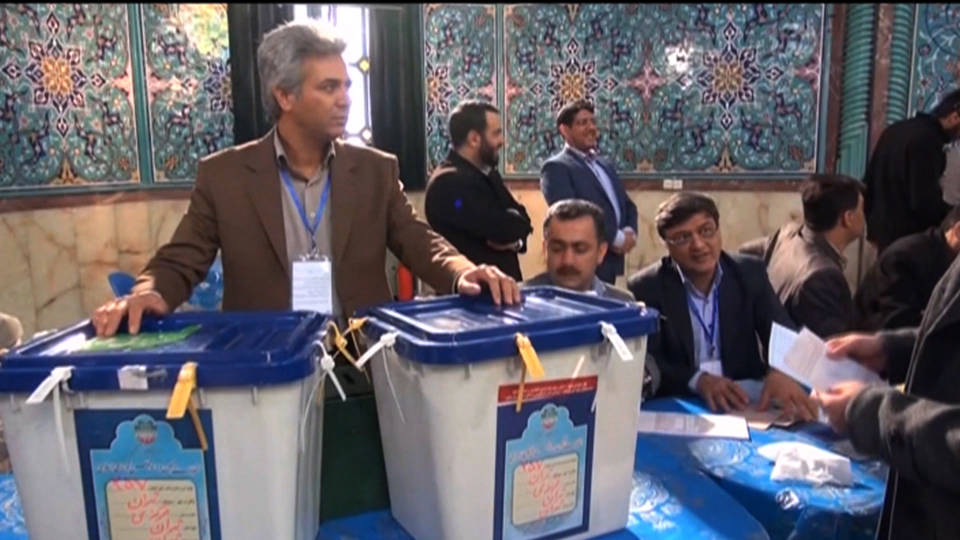
In Iran, the first elections since the landmark nuclear deal appear to have dealt a victory to reformist allies of President Hassan Rouhani. While final nationwide results appear unclear, in the capital Tehran, pro-government parties won all 30 parliamentary seats. Rouhani’s allies also appear to have blocked a number of key hardline clerics from taking posts on an influential clerical council. The early results are seen as a victory for the nuclear deal after hardliners opposed it.
California: 4 Stabbed During Clash Between KKK and Counterprotesters
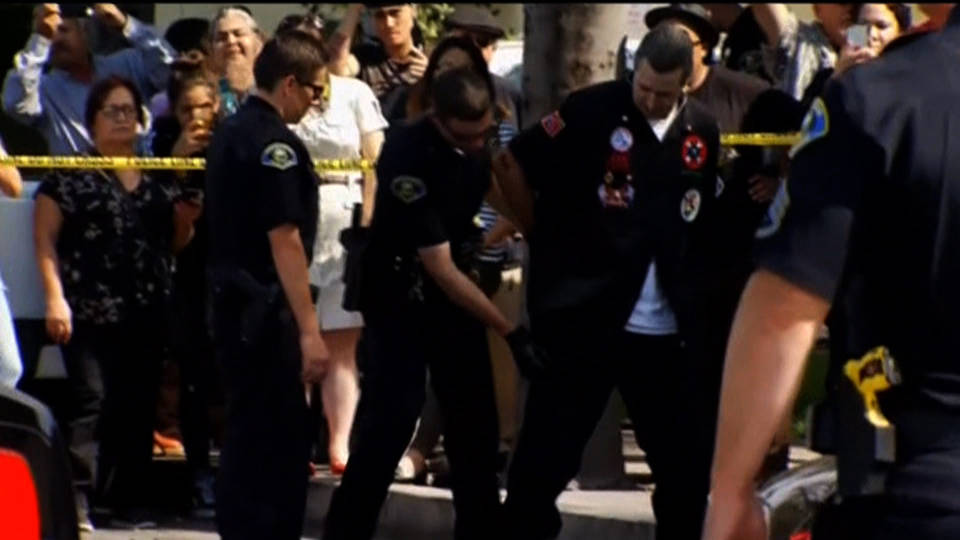
In Anaheim, California, violence erupted between members of the Ku Klux Klan and counterprotesters who disrupted a KKK rally. One person was critically wounded, and four were stabbed. Thirteen people were arrested, including a Klan member accused of stabbing a counterprotester with a flagpole.
TOPICS:
California
Racism
Michigan: Emails Show Gov. Snyder Aides Warned About Flint Water 1 Year Before It Was Switched Back

In the latest on the water crisis in Flint, Michigan, newly released emails show top aides of Michigan Governor Rick Snyder advocated changing the city’s water back to the Detroit system just months after it was switched to the corrosive Flint River. The switch, made by an unelected emergency manager, poisoned the city’s water supply with lead after the river water corroded the pipes. The emails show Snyder’s deputy legal counsel raised objections to the river water as early as October 2014, citing bacterial contamination and calling it an "urgent matter to fix." Governor Snyder’s legal counsel also backed those concerns, saying Flint should "try to get back on the Detroit system as a stopgap ASAP before this thing gets too far out of control." But it wasn’t until a year later that the water was finally switched back, after 18 months of using the Flint River water. By then, residents had complained of a raft of cognitive and physical impairments from the poisoned water. To see our report from Flint go todemocracynow.org.
TOPICS:
Michigan
Water
African-American Stars Attend Benefit for Flint Instead of Oscars
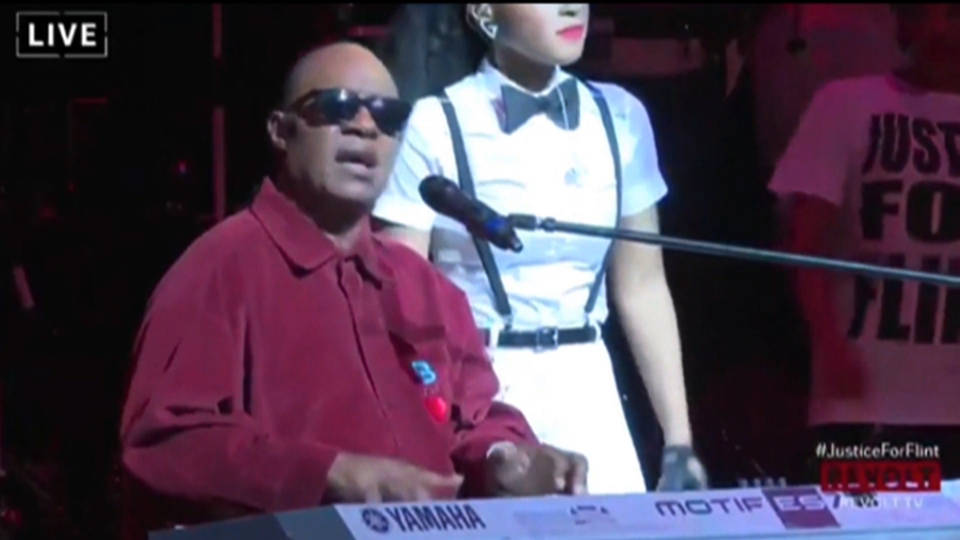
A group of African-American filmmakers, musicians and other stars held a benefit for Flint residents Sunday, the night of the Oscars. "Creed" director and co-writer Ryan Coogler, who was passed over for a nomination while white actor Sylvester Stallone was nominated for his role in the film, joined "Selma" director Ava DuVernay and many more at the #JusticeForFlint event, as did musicians Janelle Monáe and Stevie Wonder.
TOPICS:
Oscars
Host Chris Rock Blasts White Oscars; "The Big Short" Director Criticizes Money in Politics
Meanwhile at the Oscars, host Chris Rock made repeated references to the whiteness of the nominees. We’ll play excerpts of his remarks later in the broadcast. In another political moment, director and screenwriter Adam McKay warned against big money in politics as he accepted an Oscar for best adapted screenplay for "The Big Short," about the financial crisis.
Adam McKay: "Most of all, if you don’t want big money to control government, don’t vote for candidates that take money from big banks, oil or weirdo billionaires. Stop!"
The Oscar for best picture went to "Spotlight," about The Boston Globe’s coverage of sexual abuse by priests. We’ll have more on the Oscars later in the broadcast.
TOPICS:
Oscars
Washington: Man Kills Wife and Her Children in Latest U.S. Mass Shooting
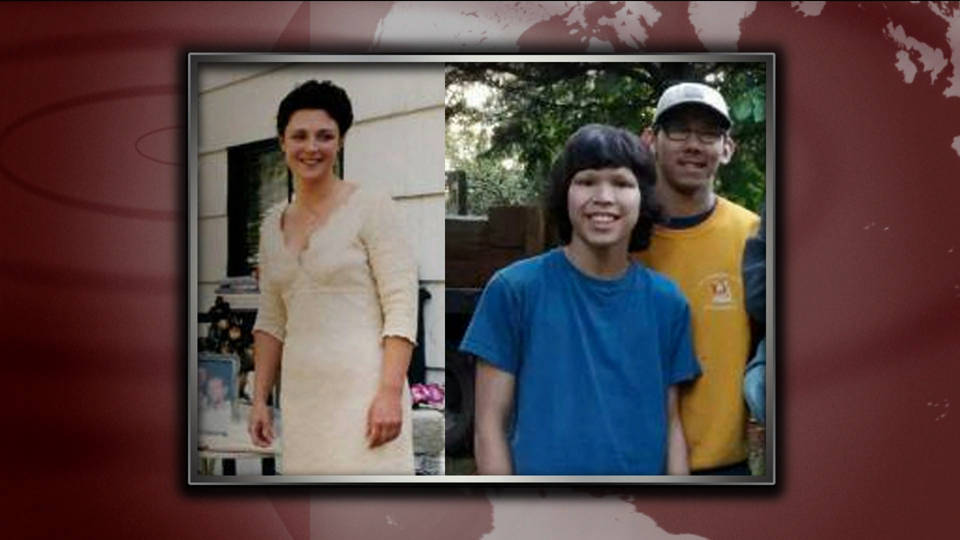
And in the latest mass shooting in the United States, a man in Washington state killed his wife and her two teenage children, then shot and killed himself. The identity of a fourth victim has not been released yet. Police tried for hours to get David Wayne Campbell to surrender after he killed his family. On average, three women are killed by their partners every day in the United States.
Donate today:
Follow:

Calls Grow for Wendy's to Join Fair Food Program as Coalition Plans Major Protest of Fast-Food Giant
COLUMN

Broadcast Engineer
Director of Finance and Operations
Director of Development---------------------
207 West 25th Street, 11th Floor
New York, New York 10001, United States
---------------------
---------------------





No comments:
Post a Comment